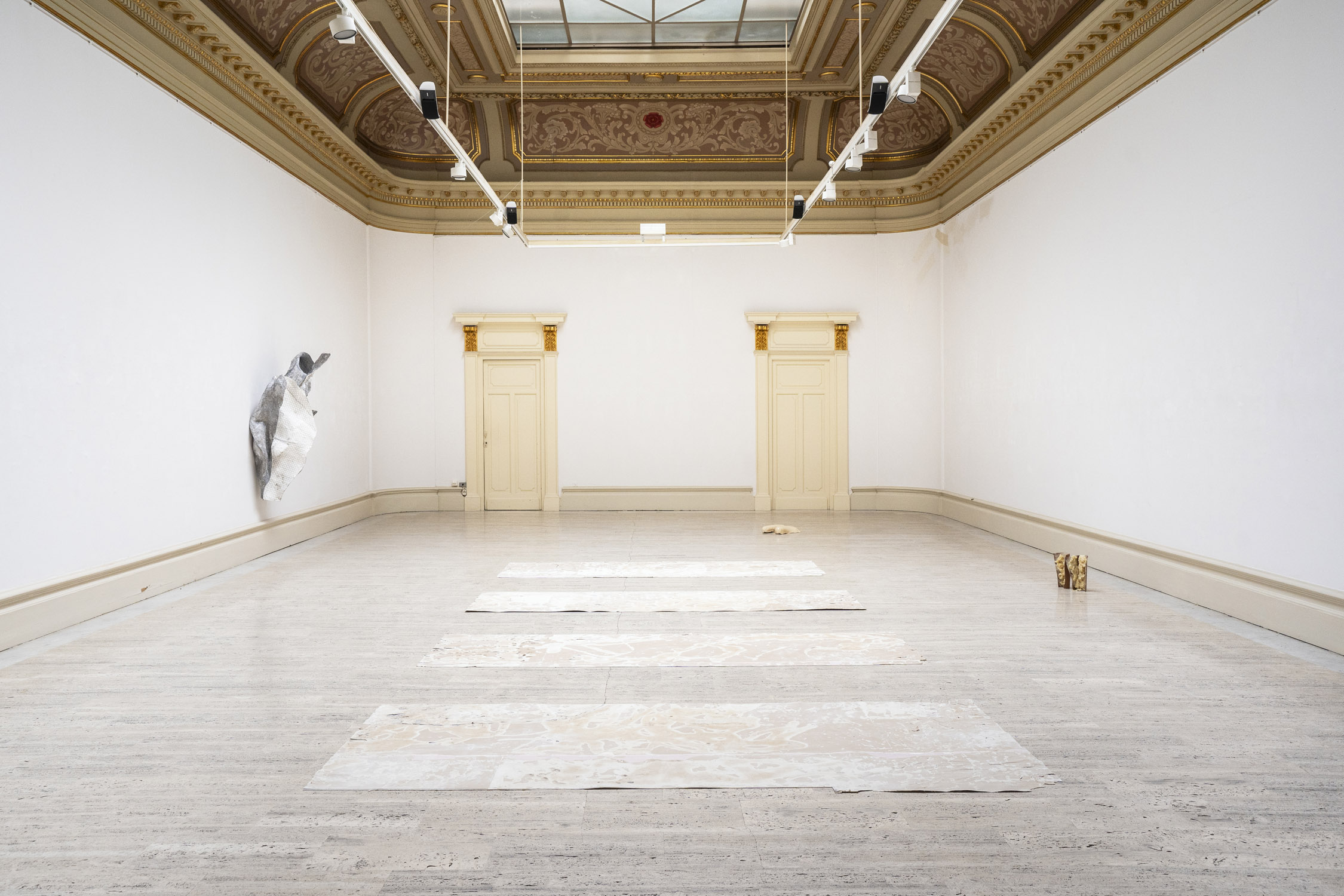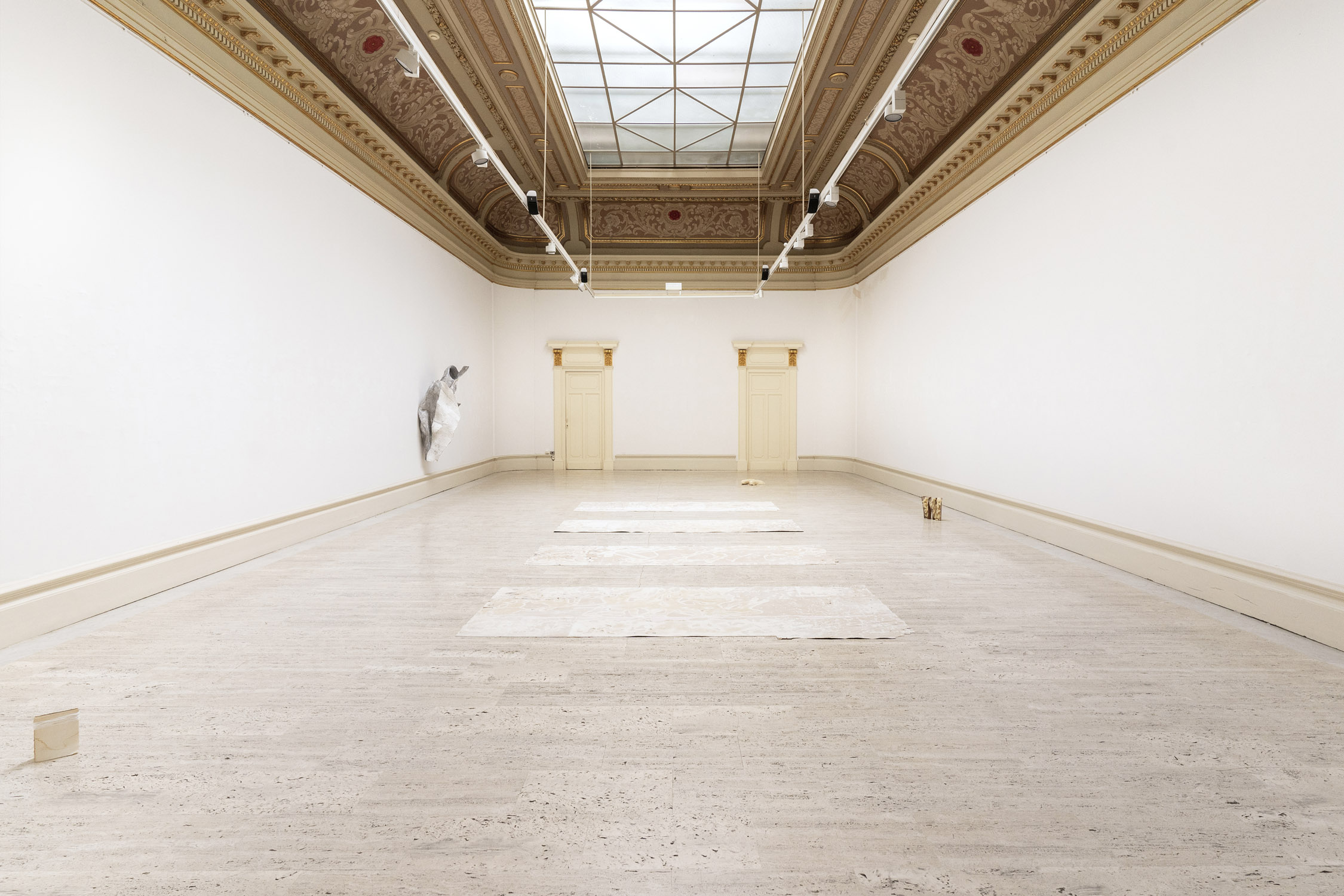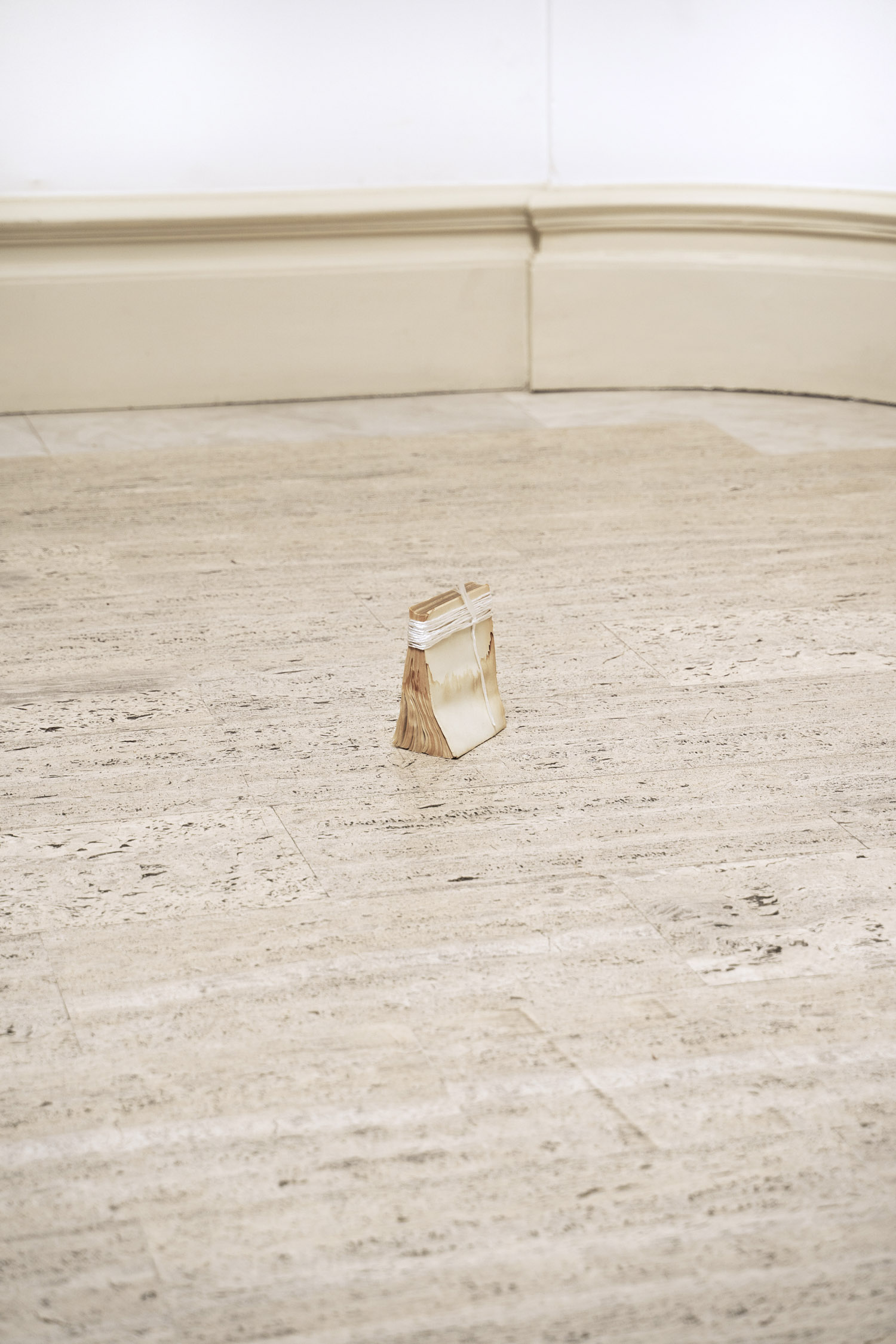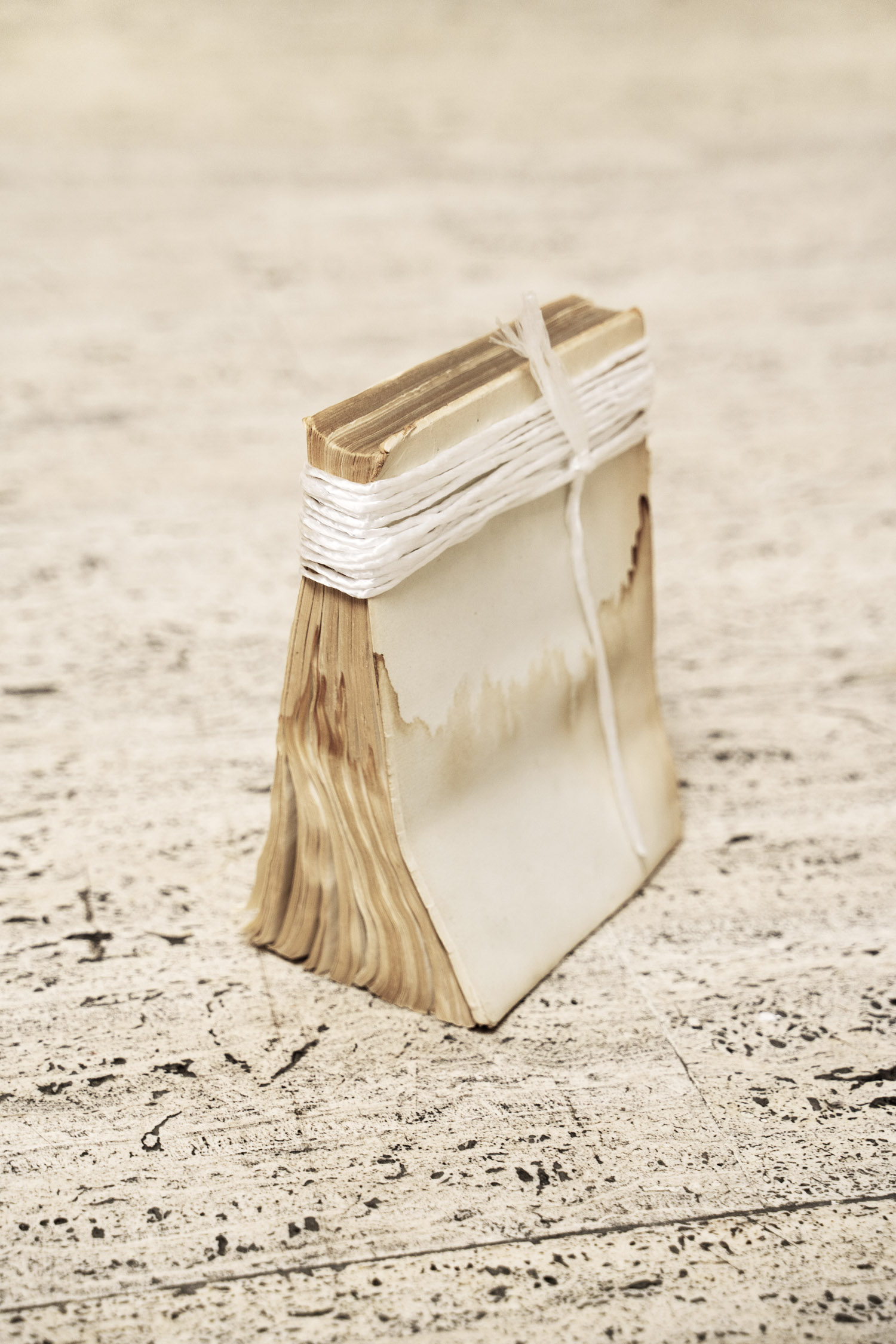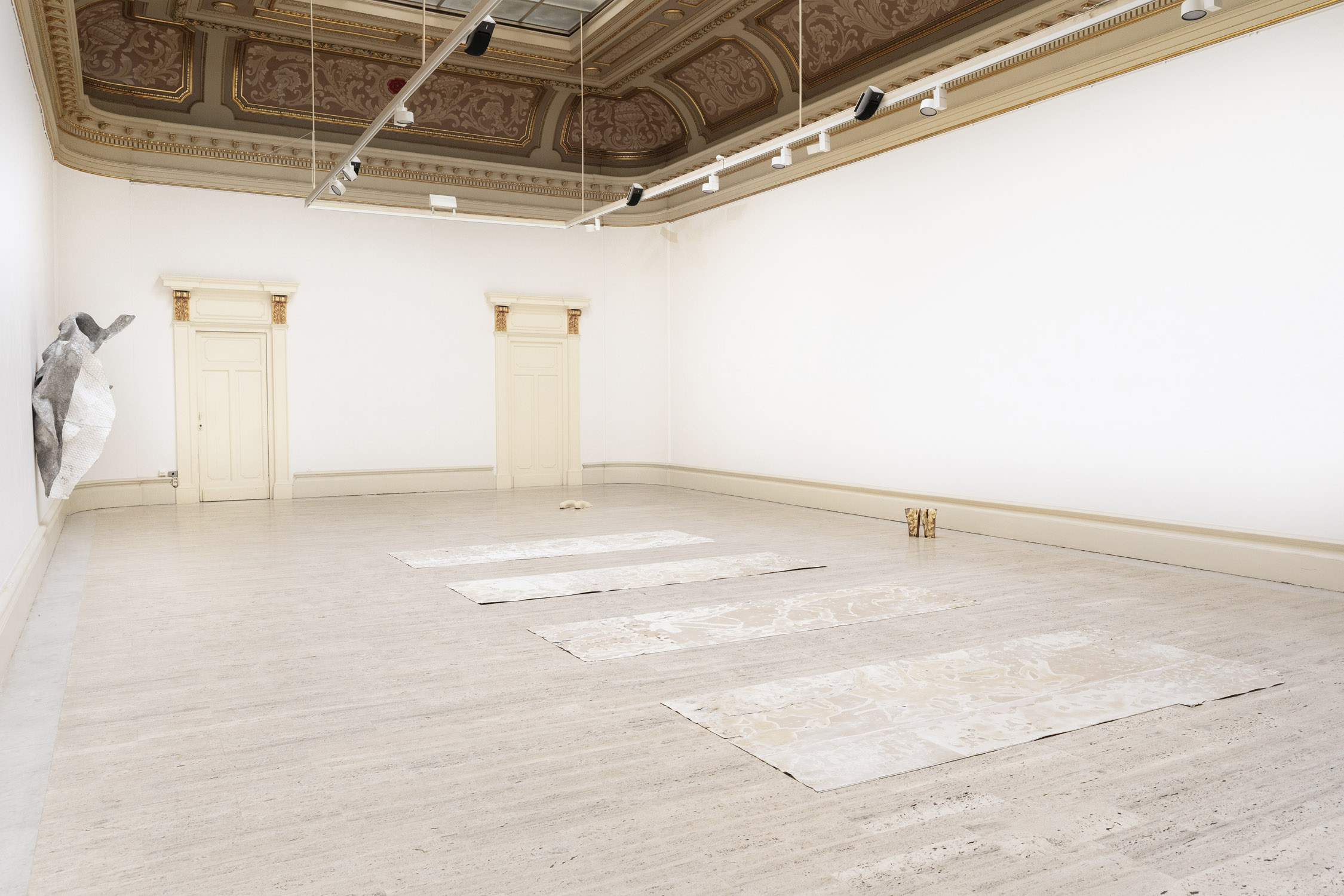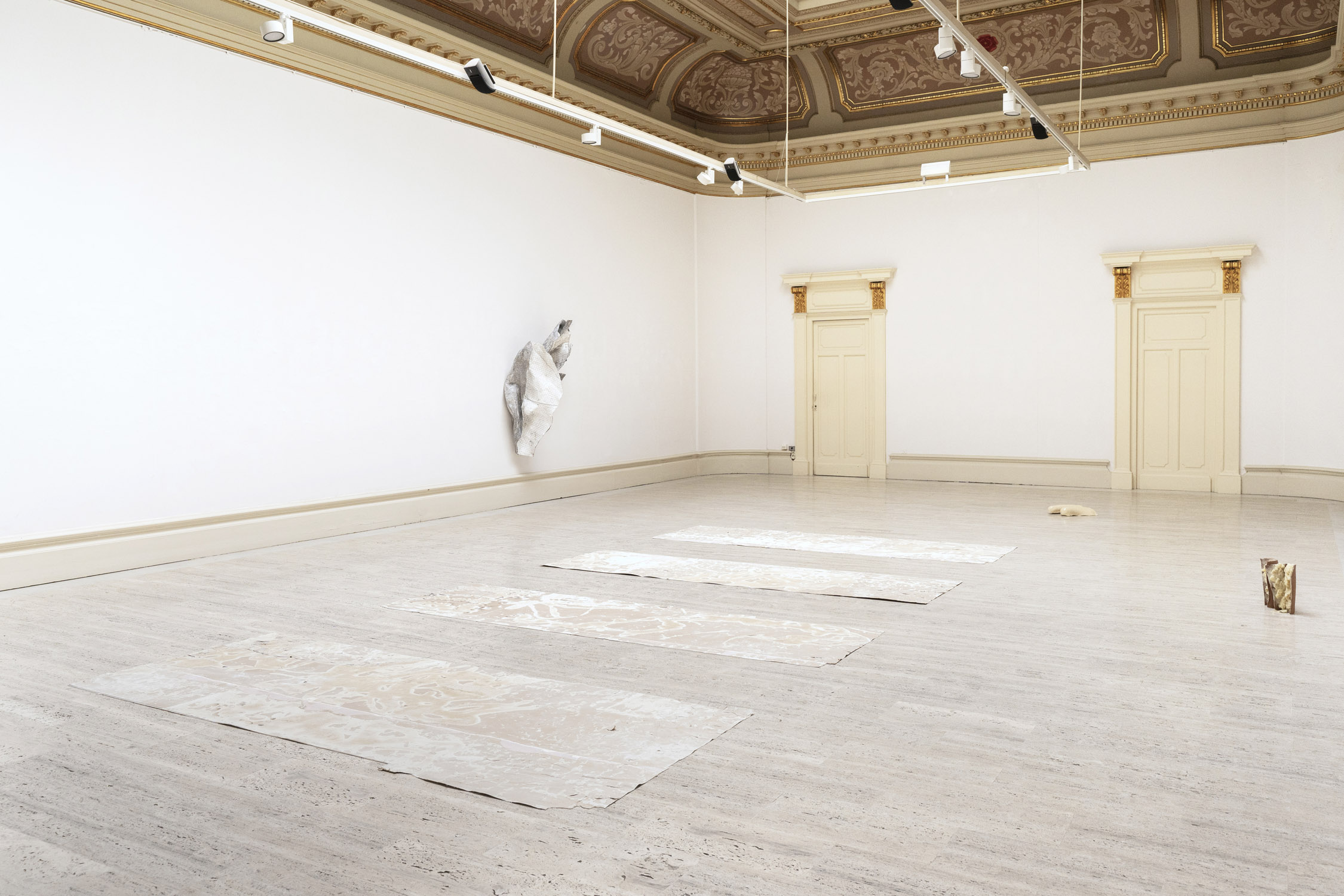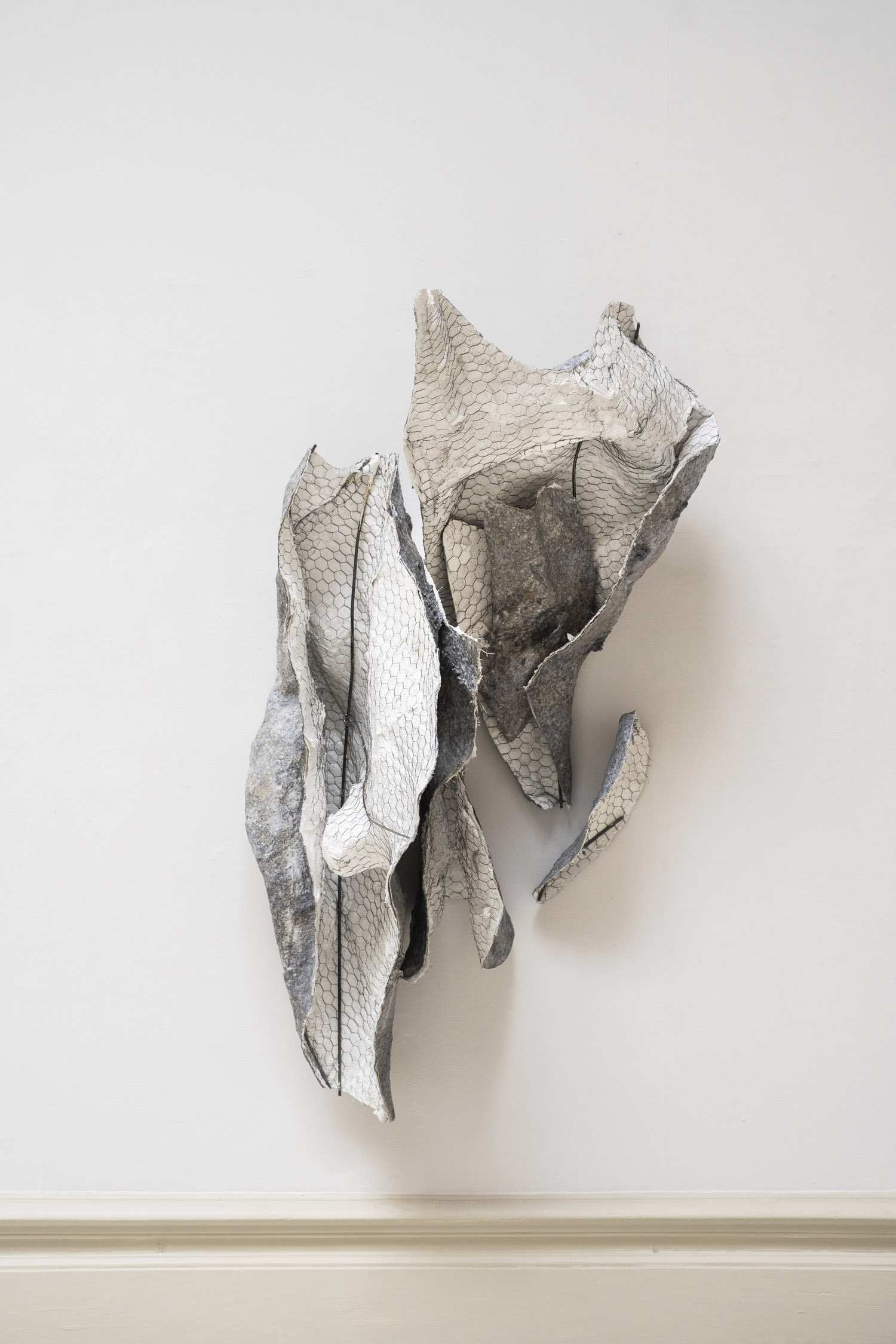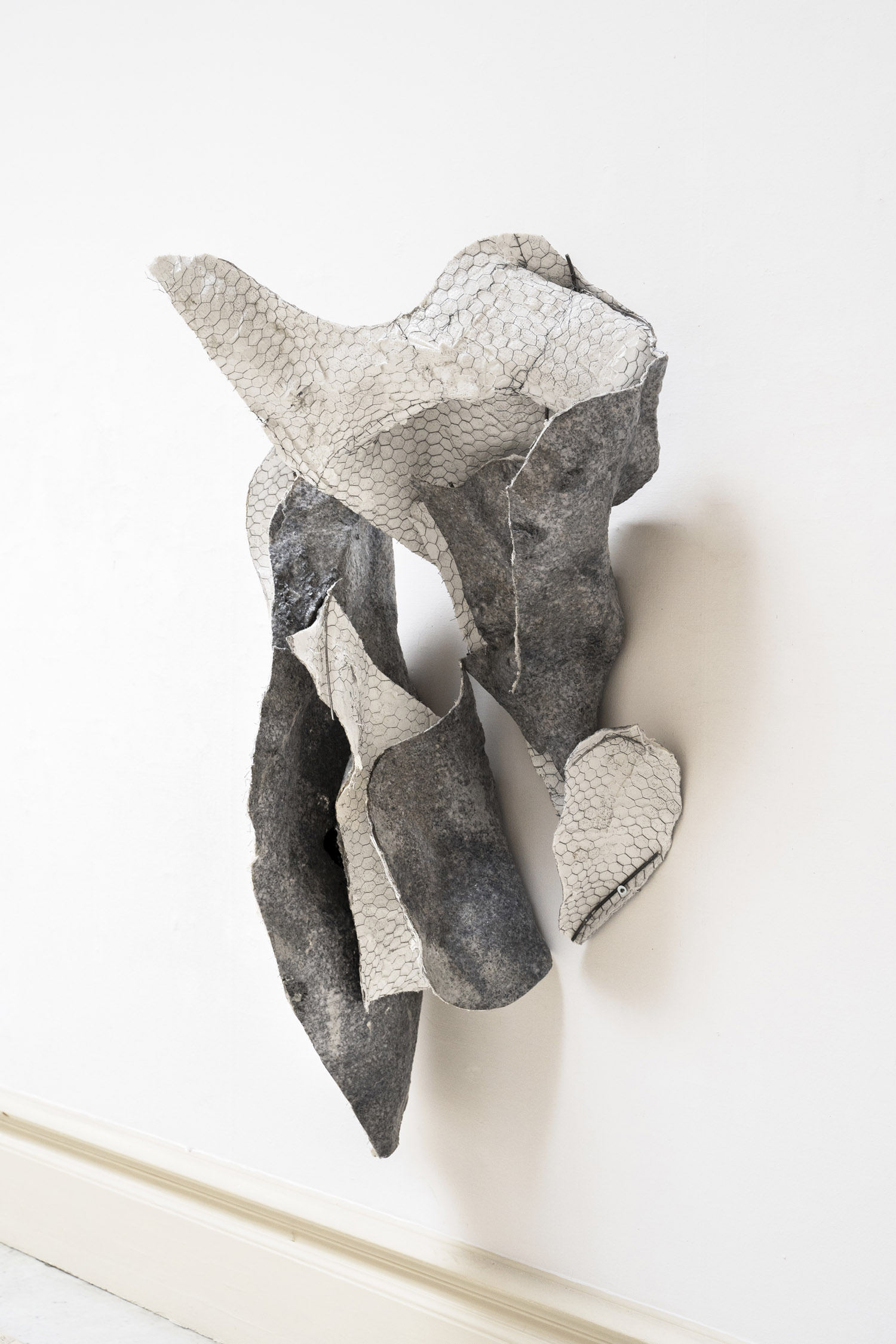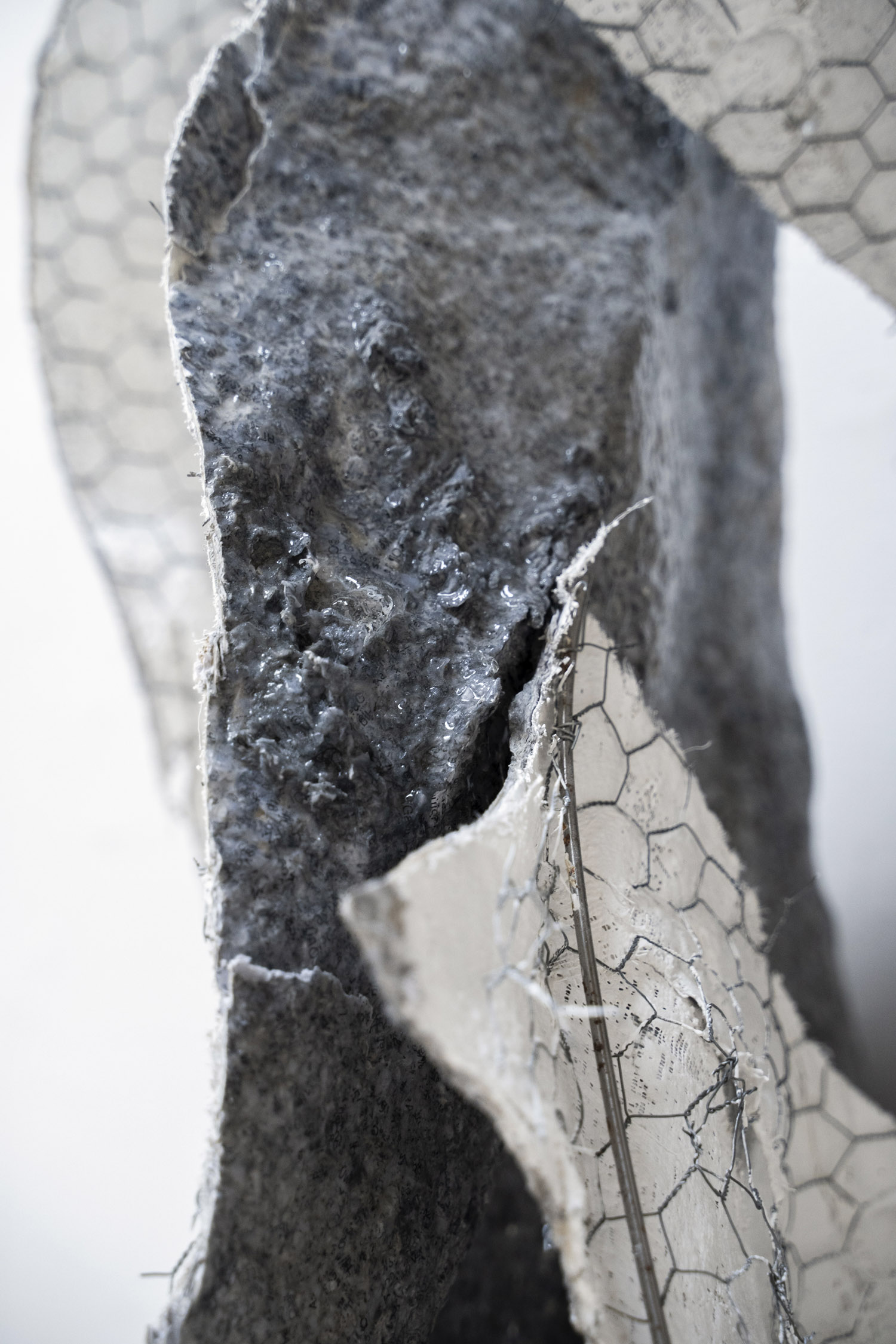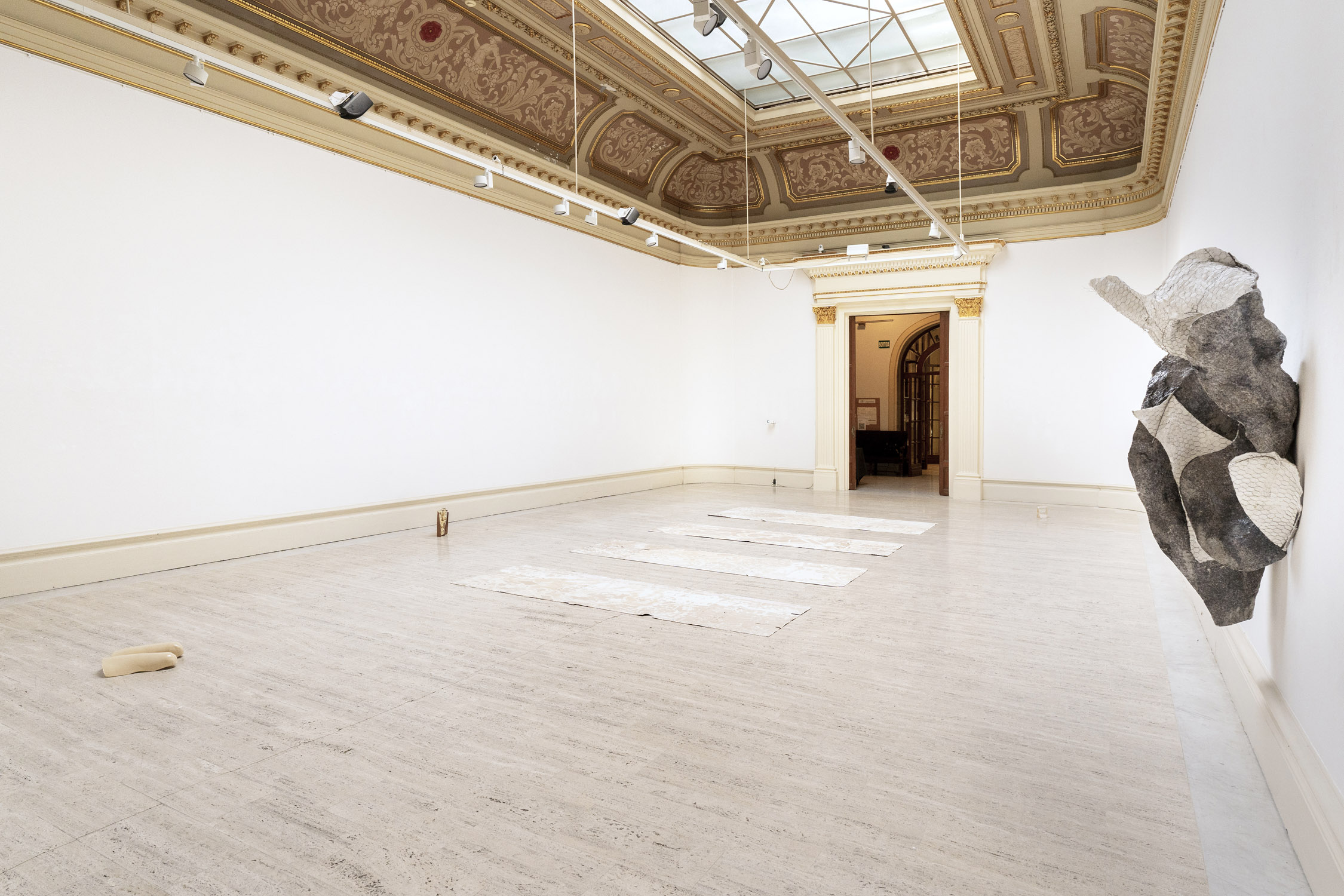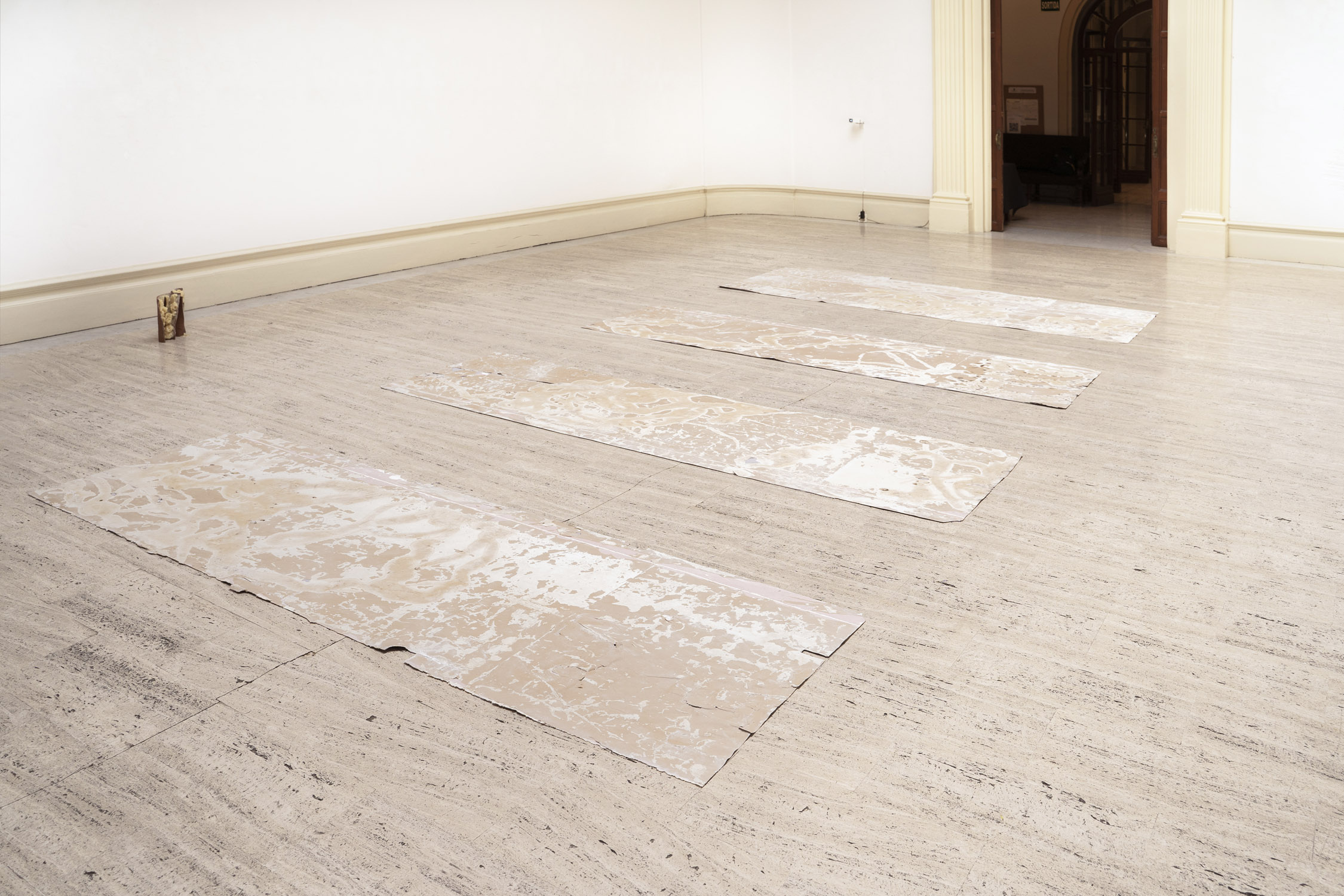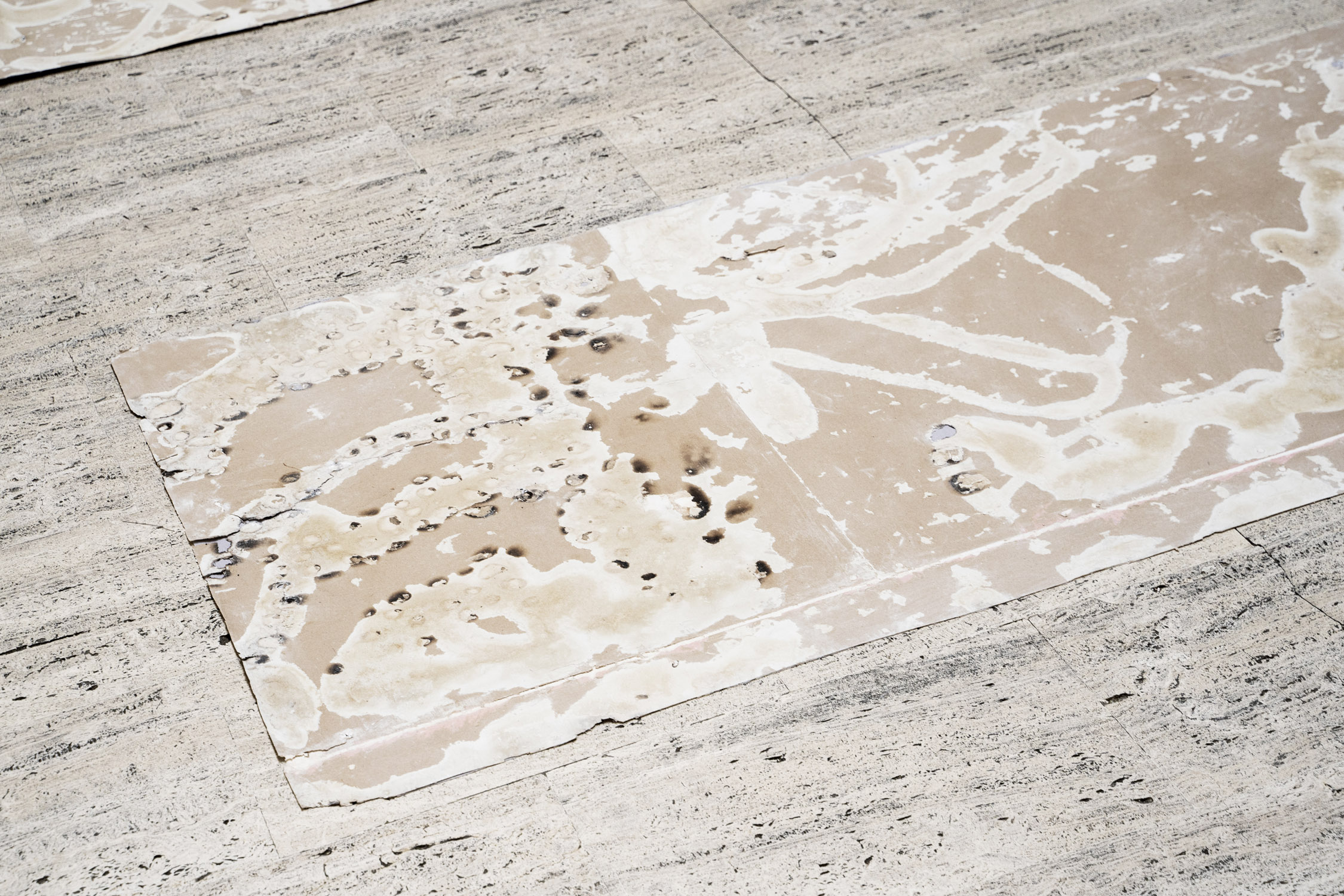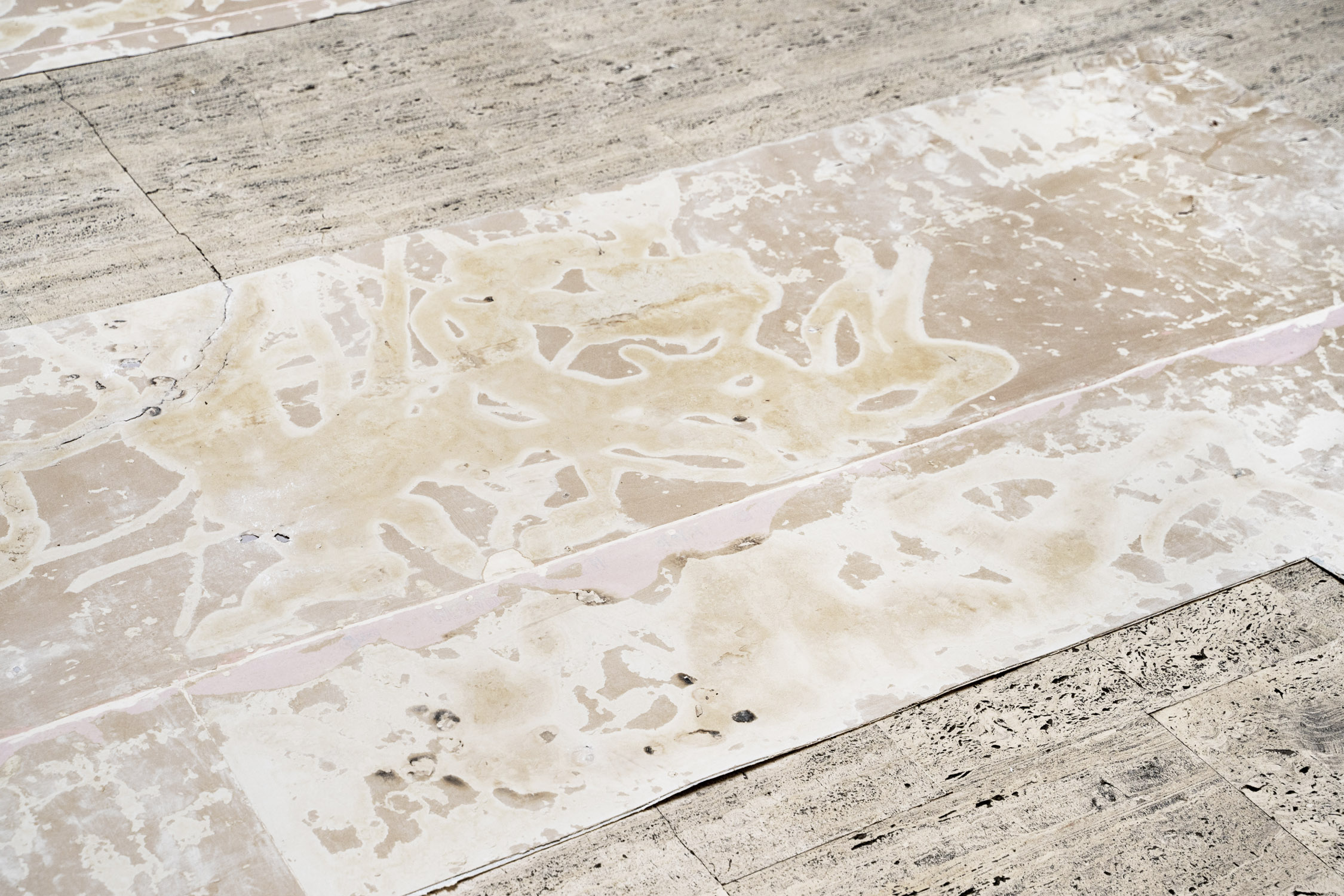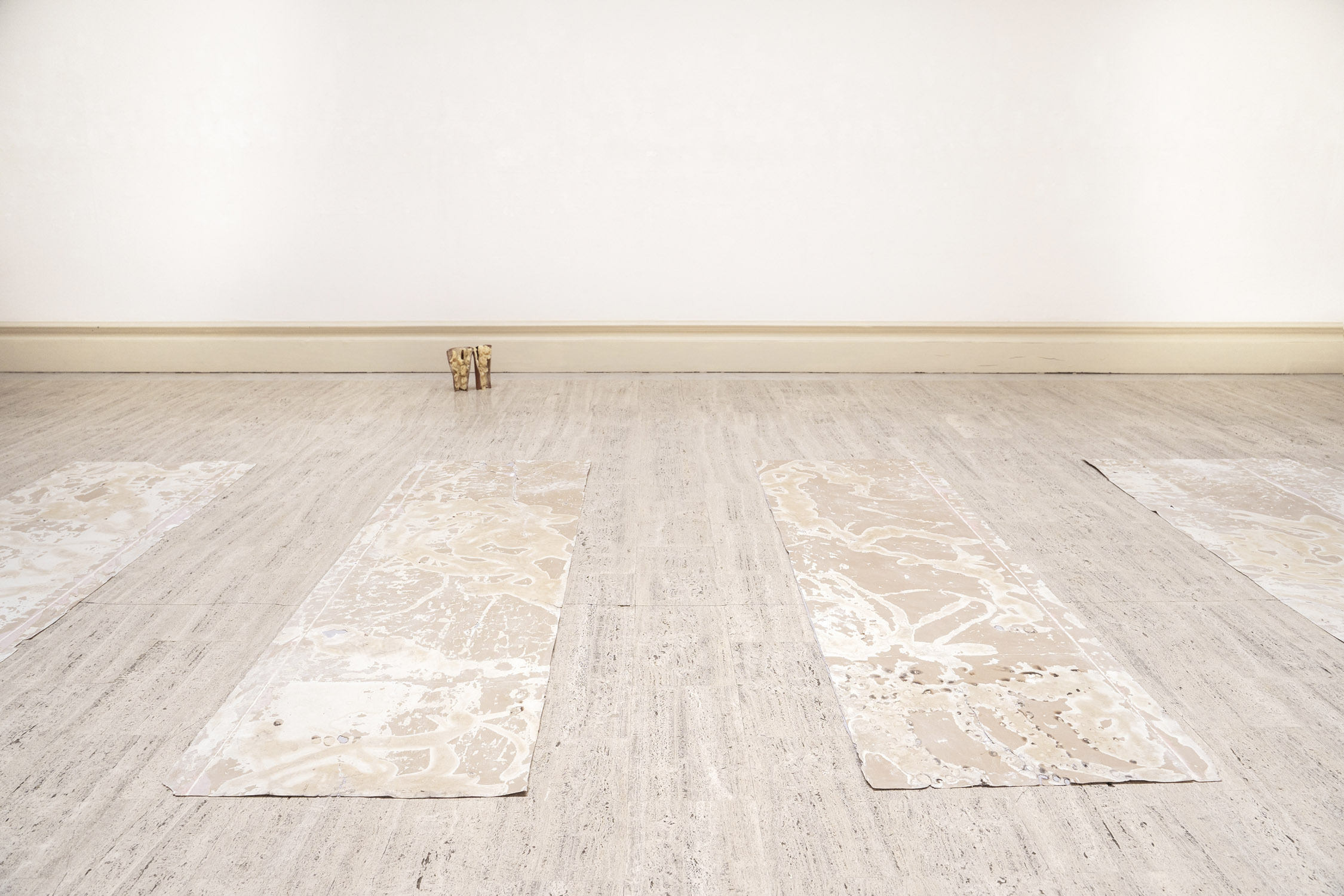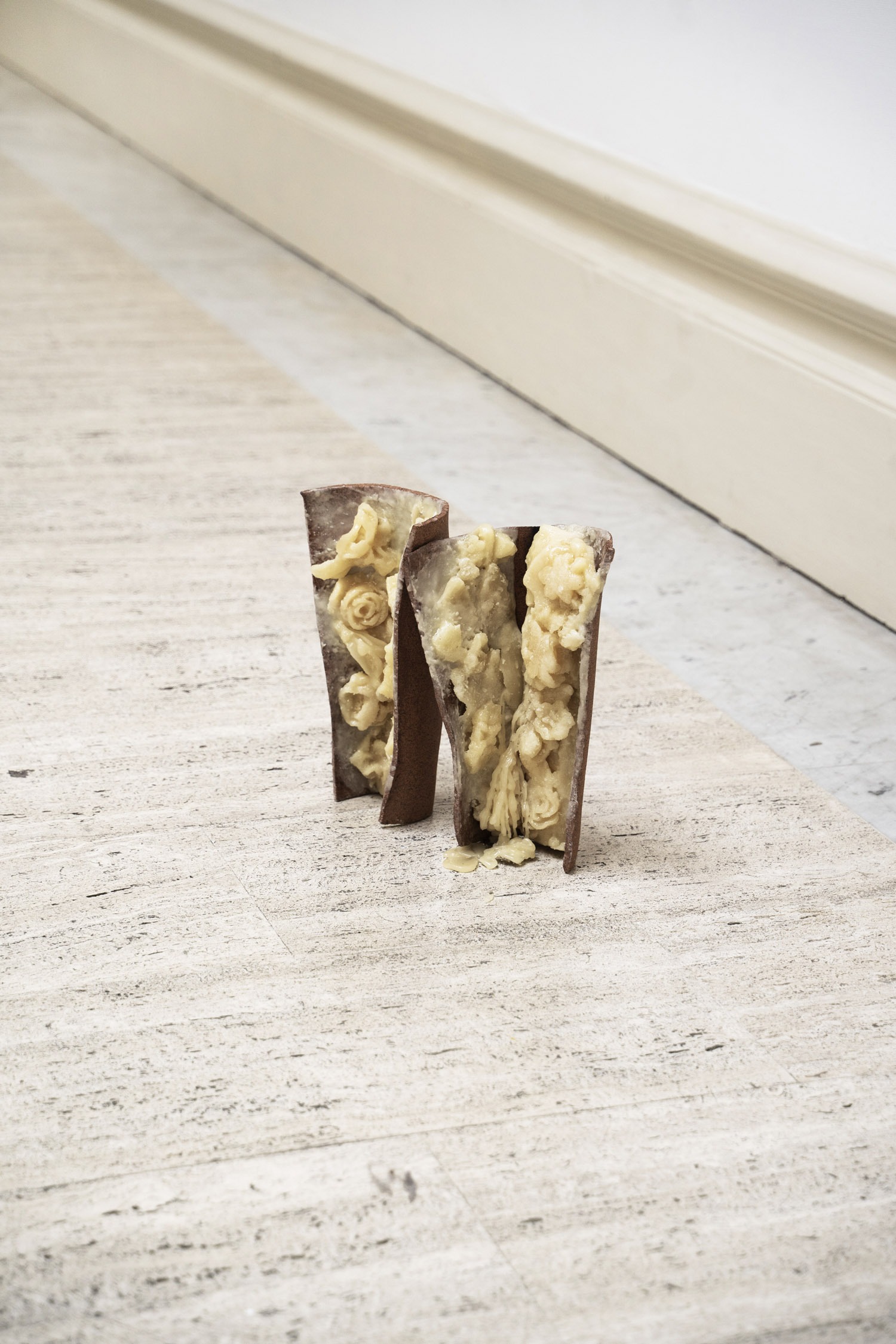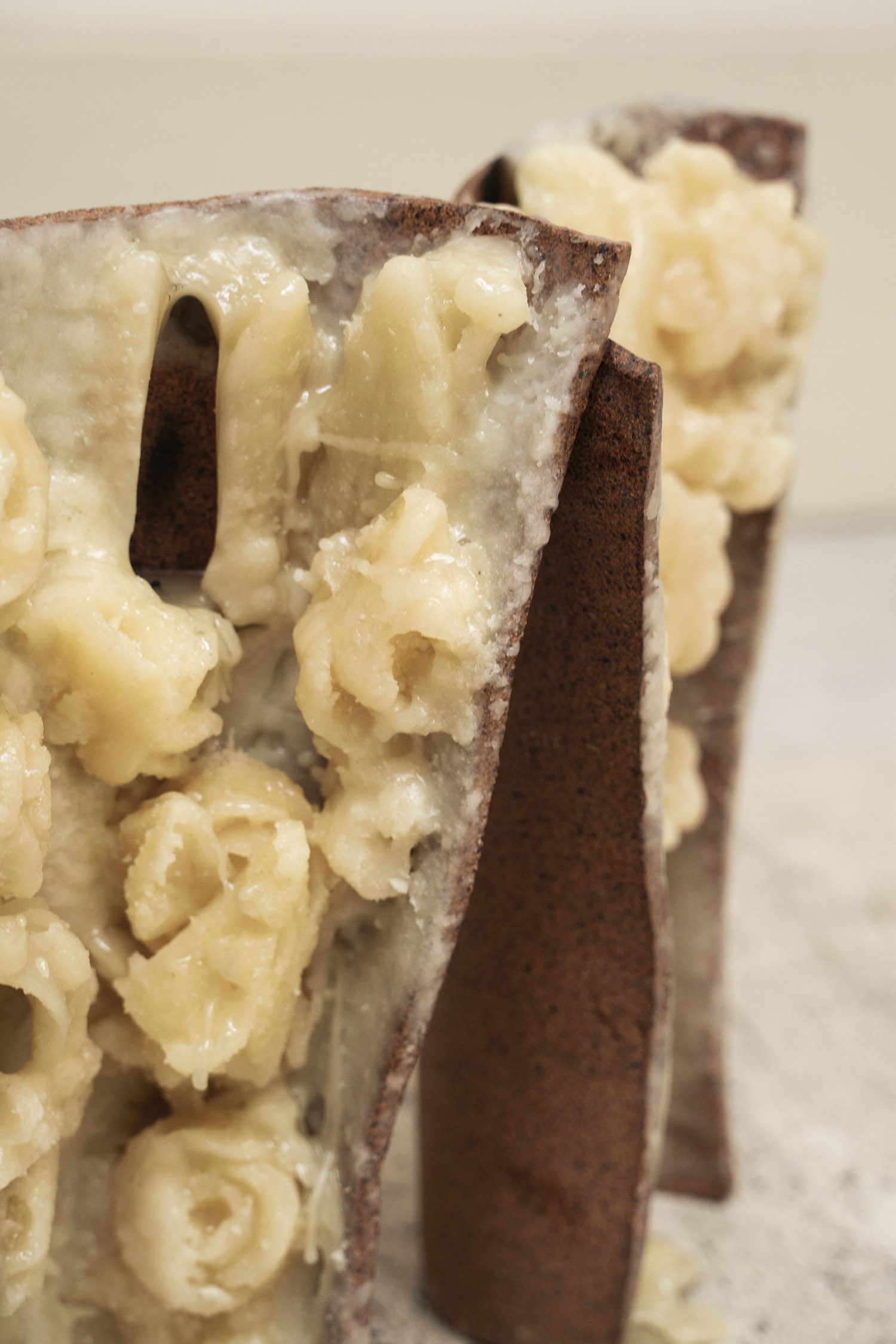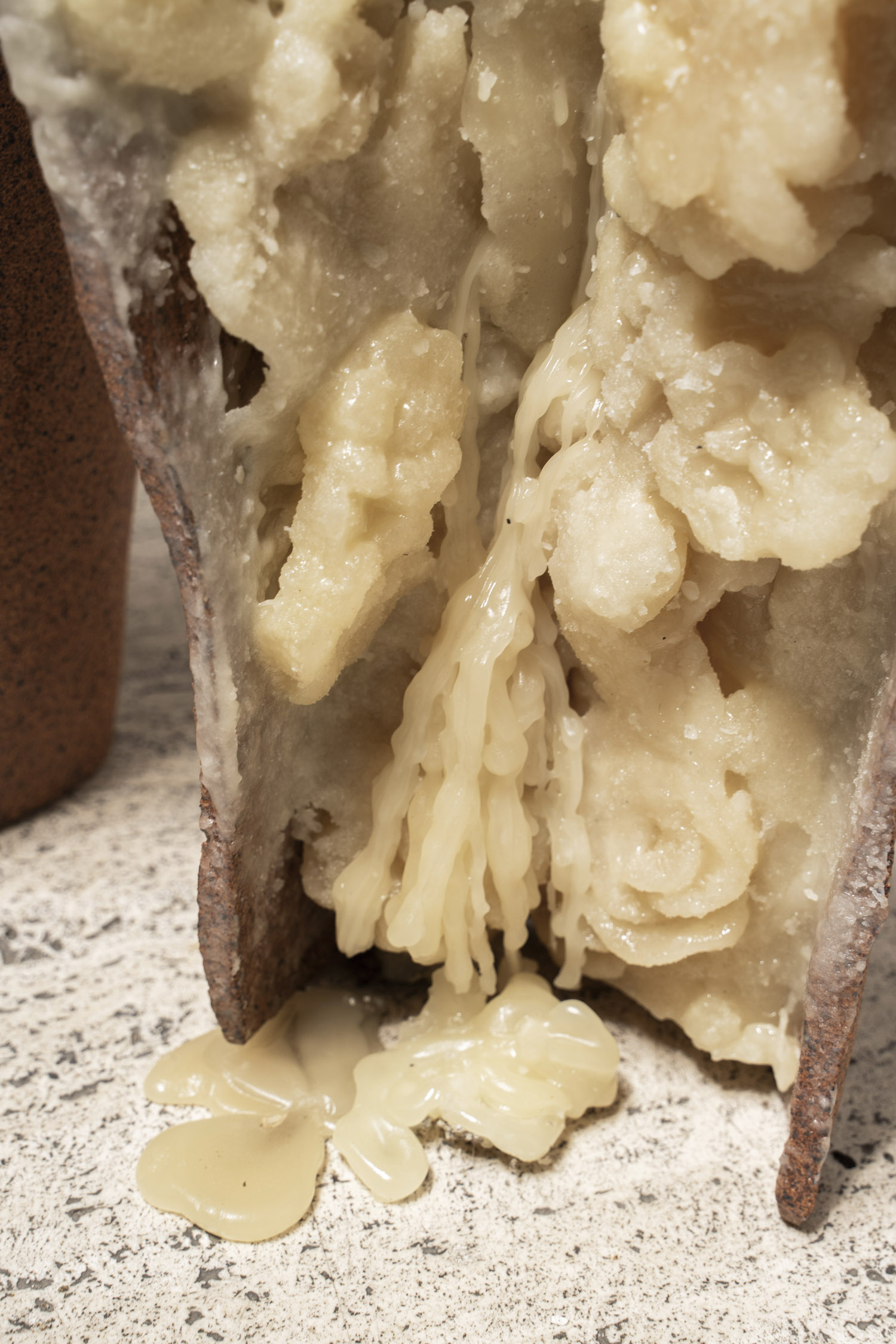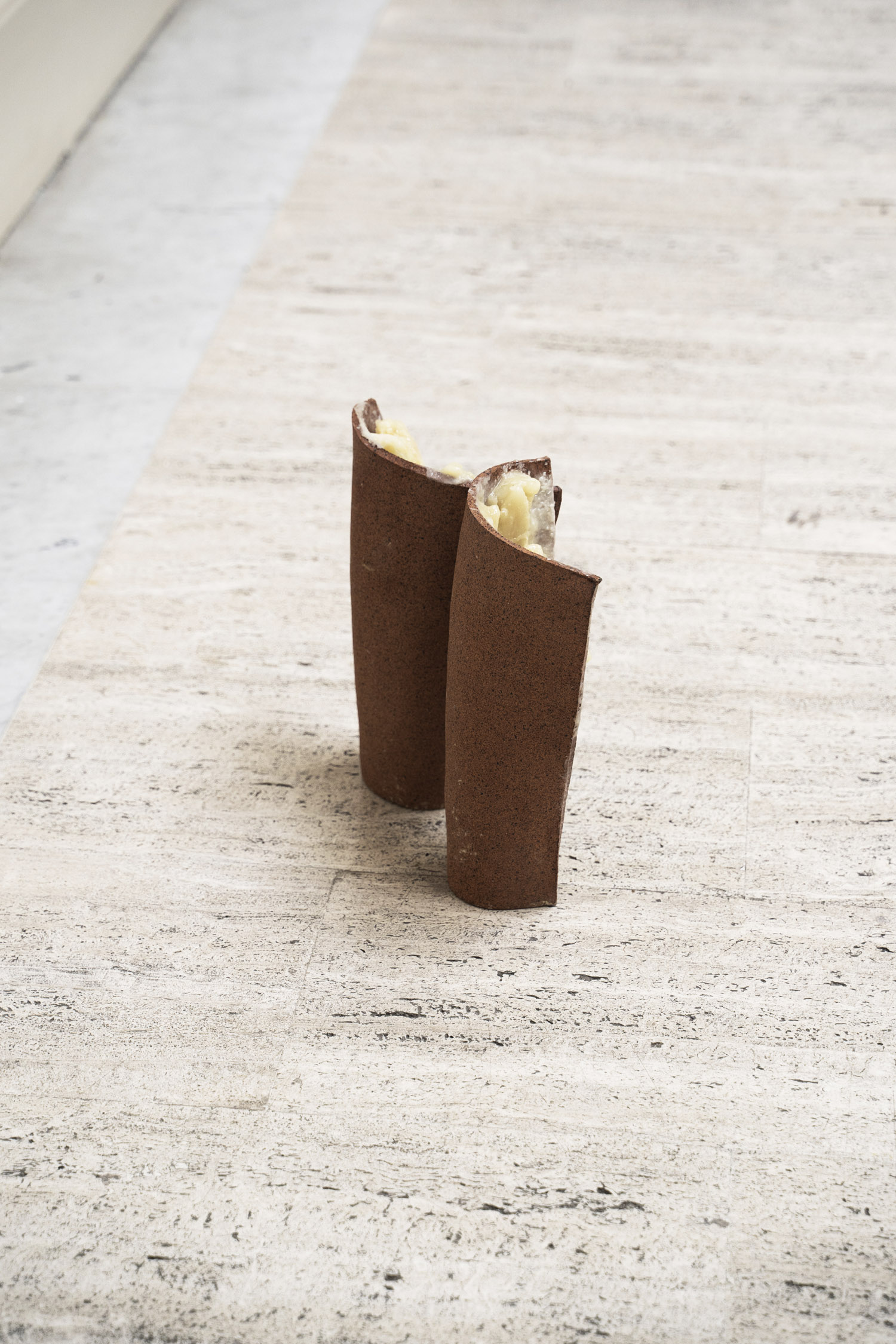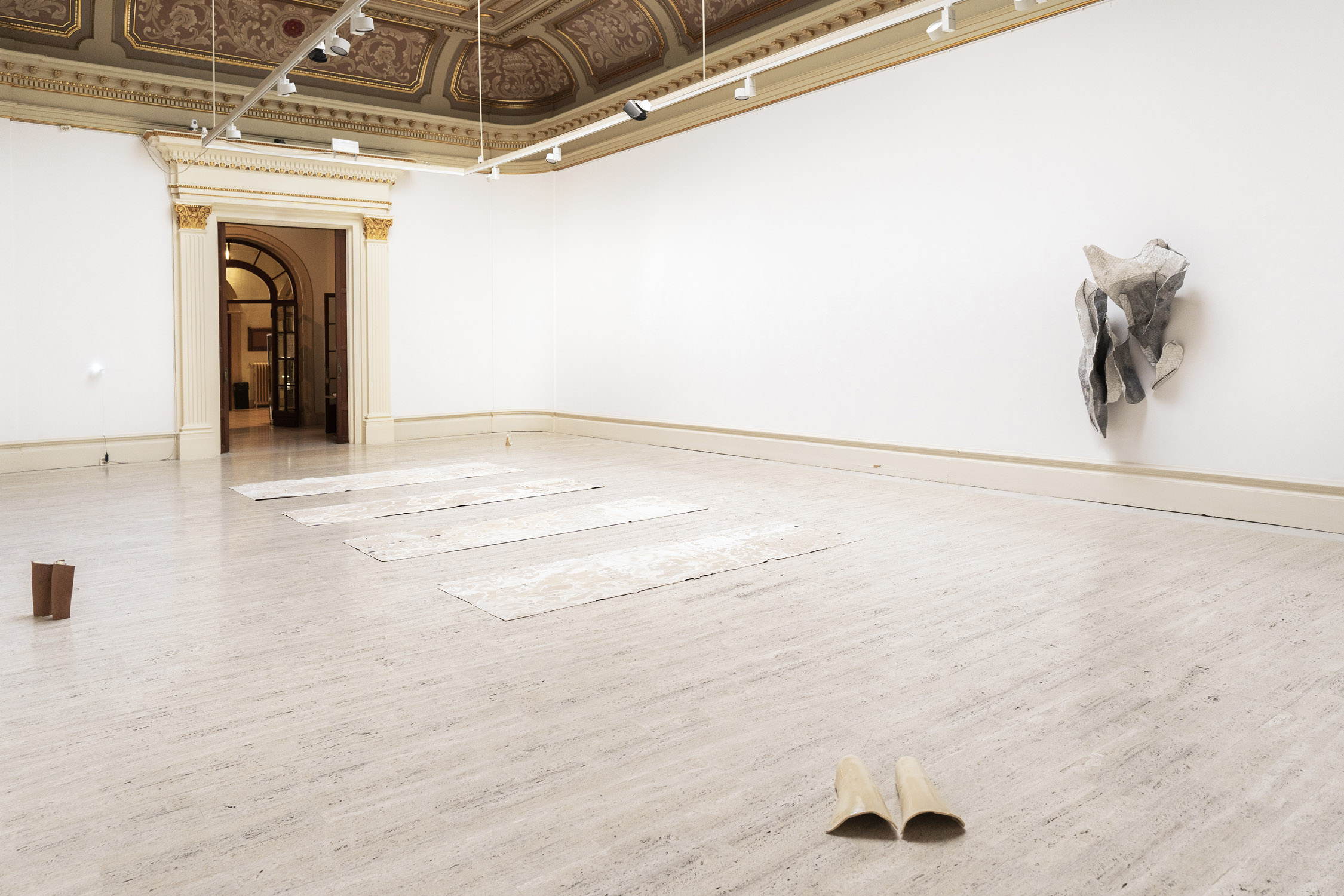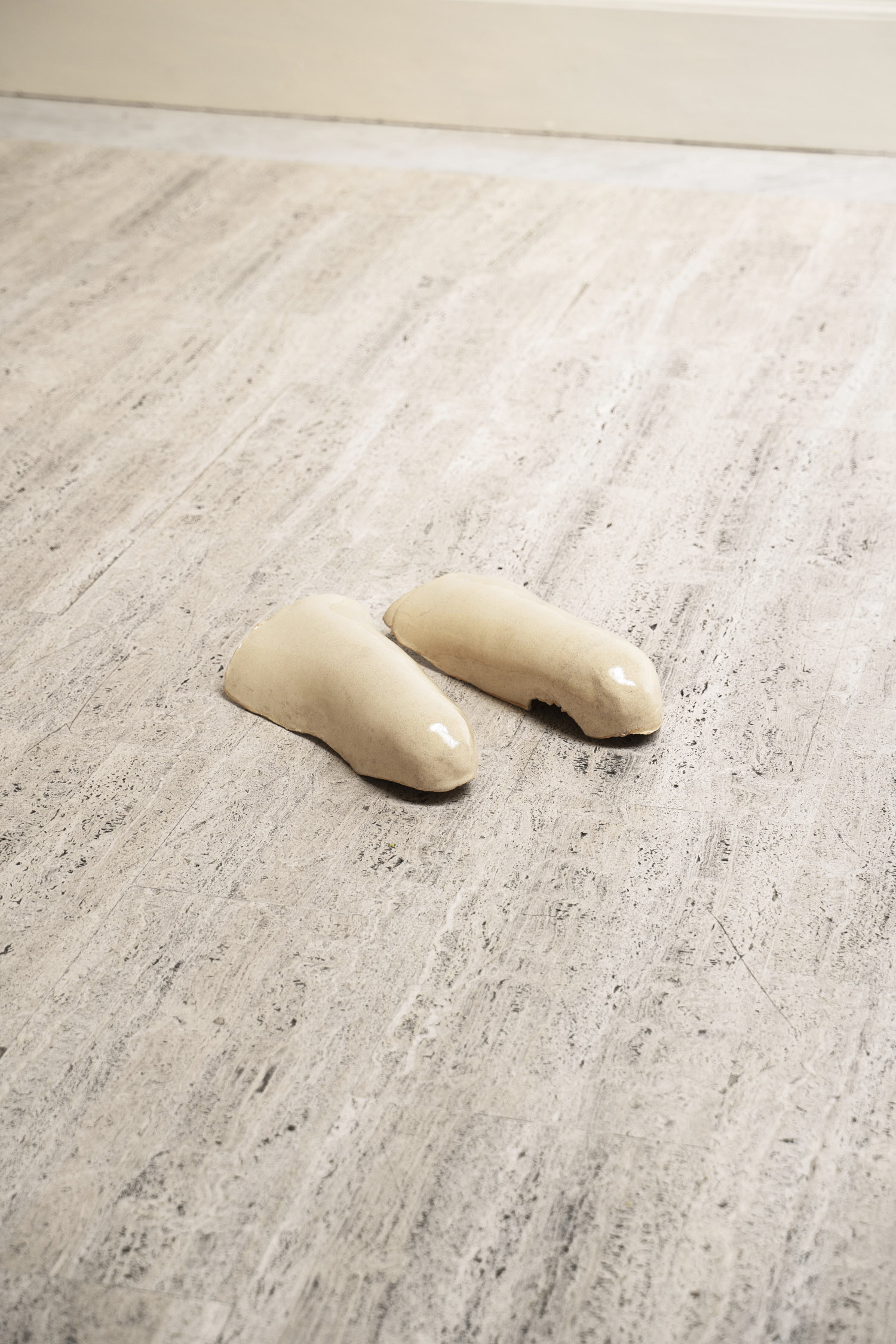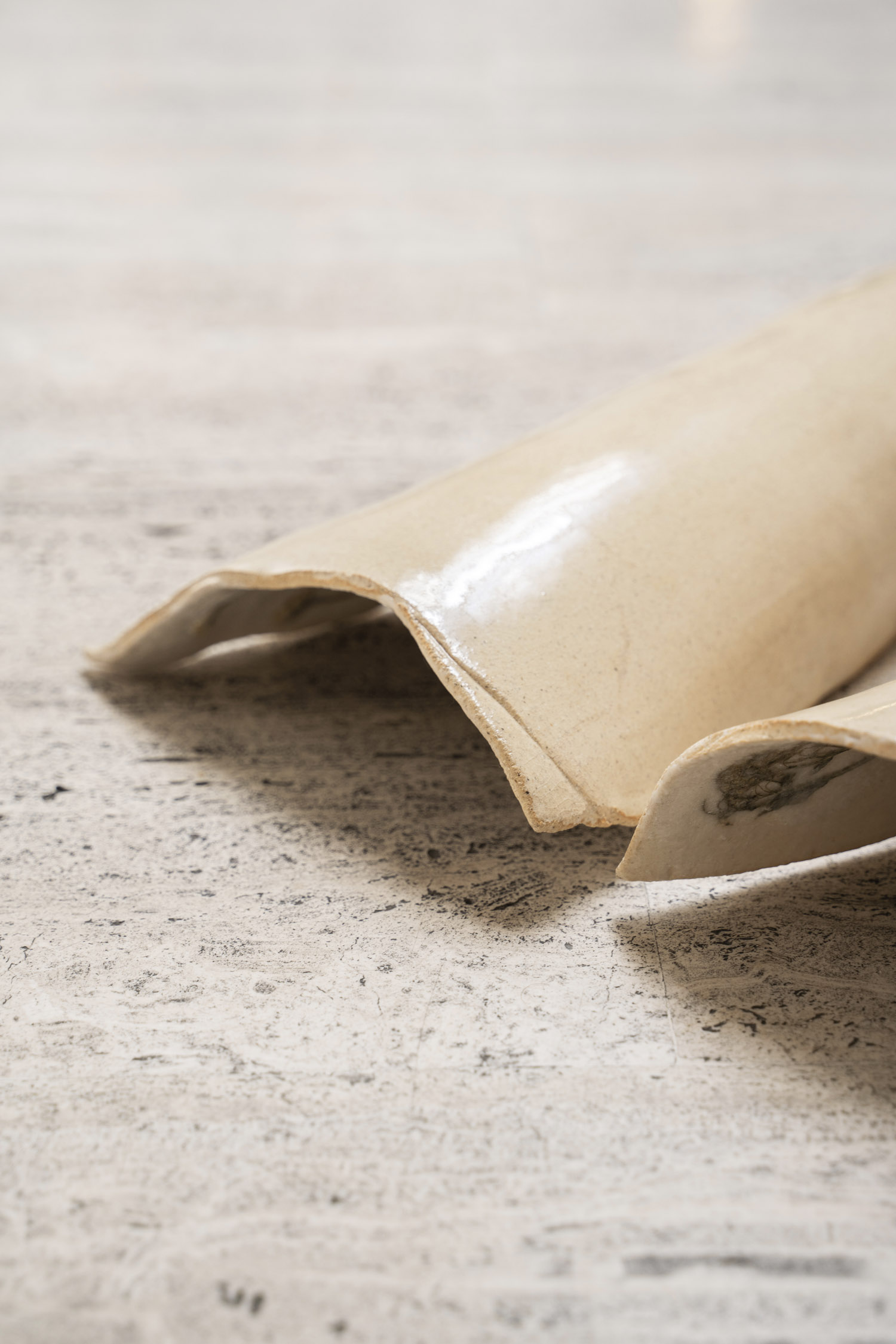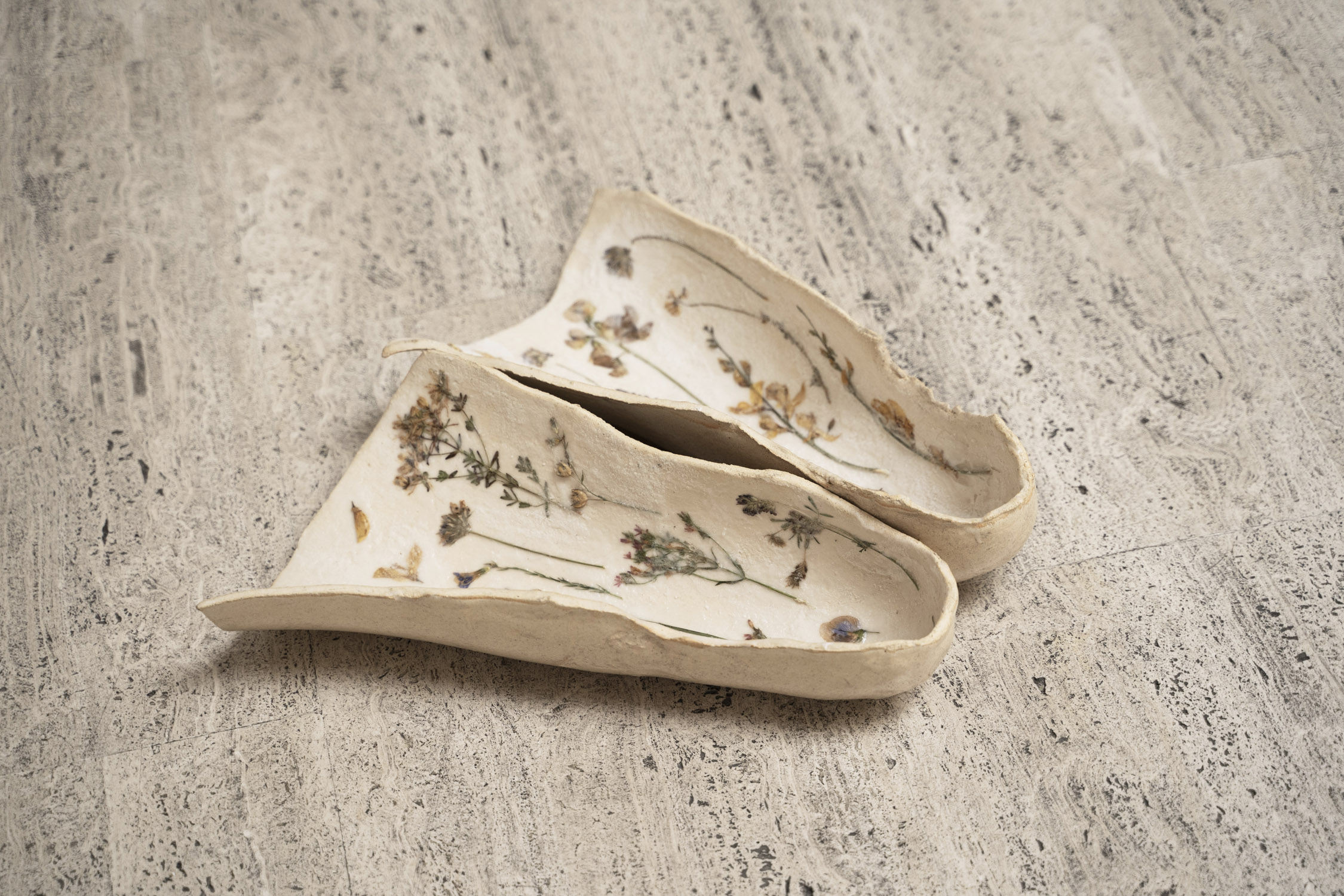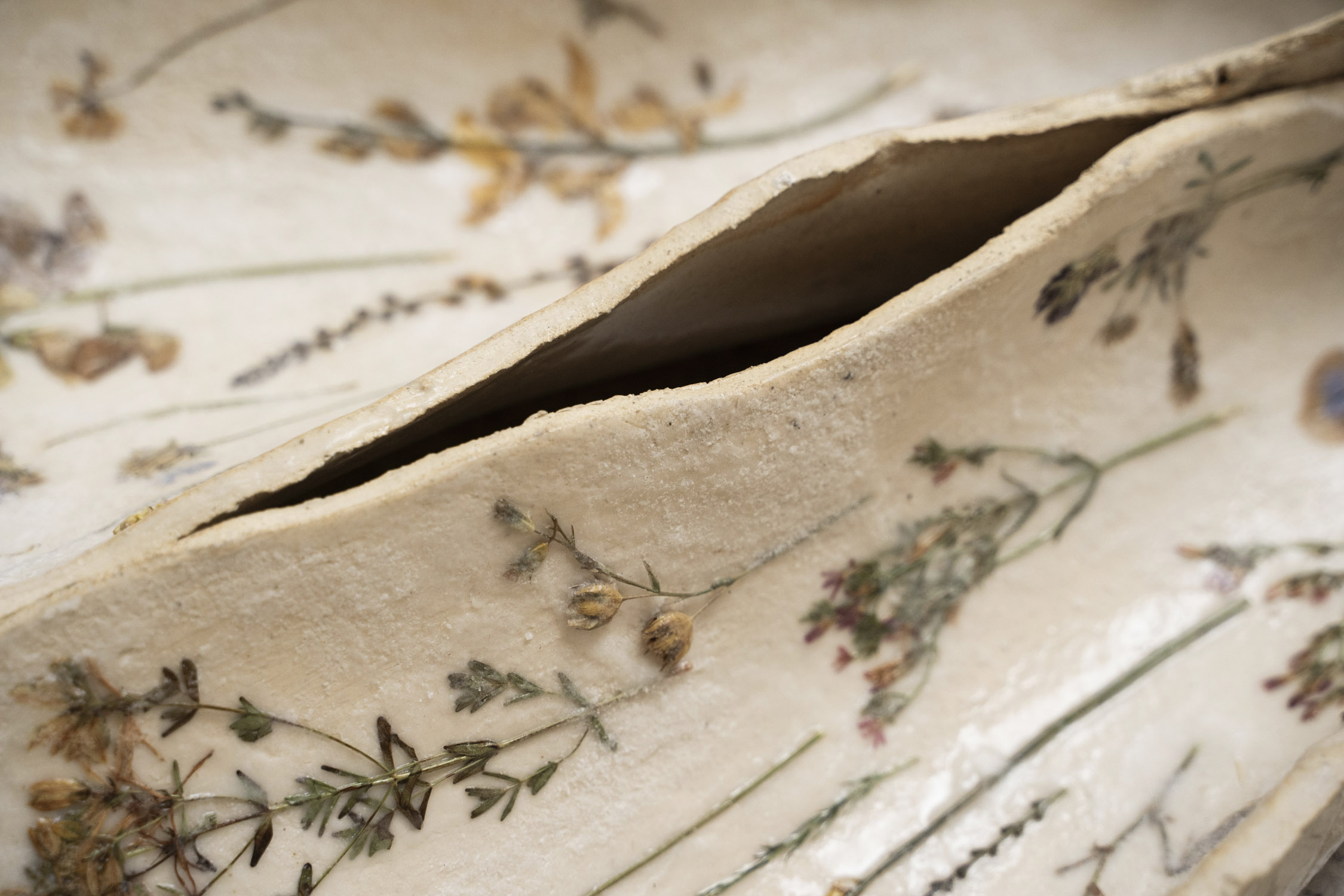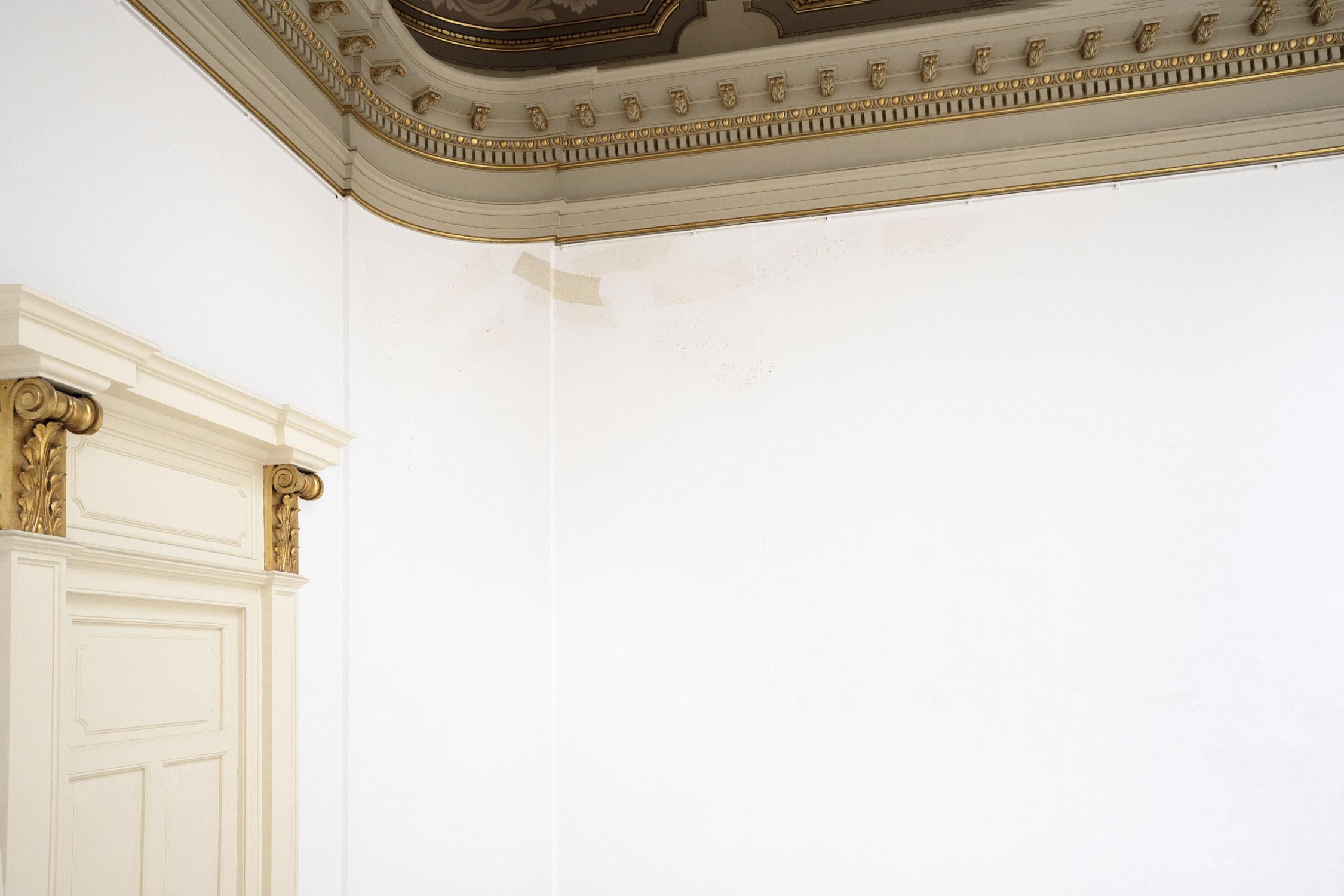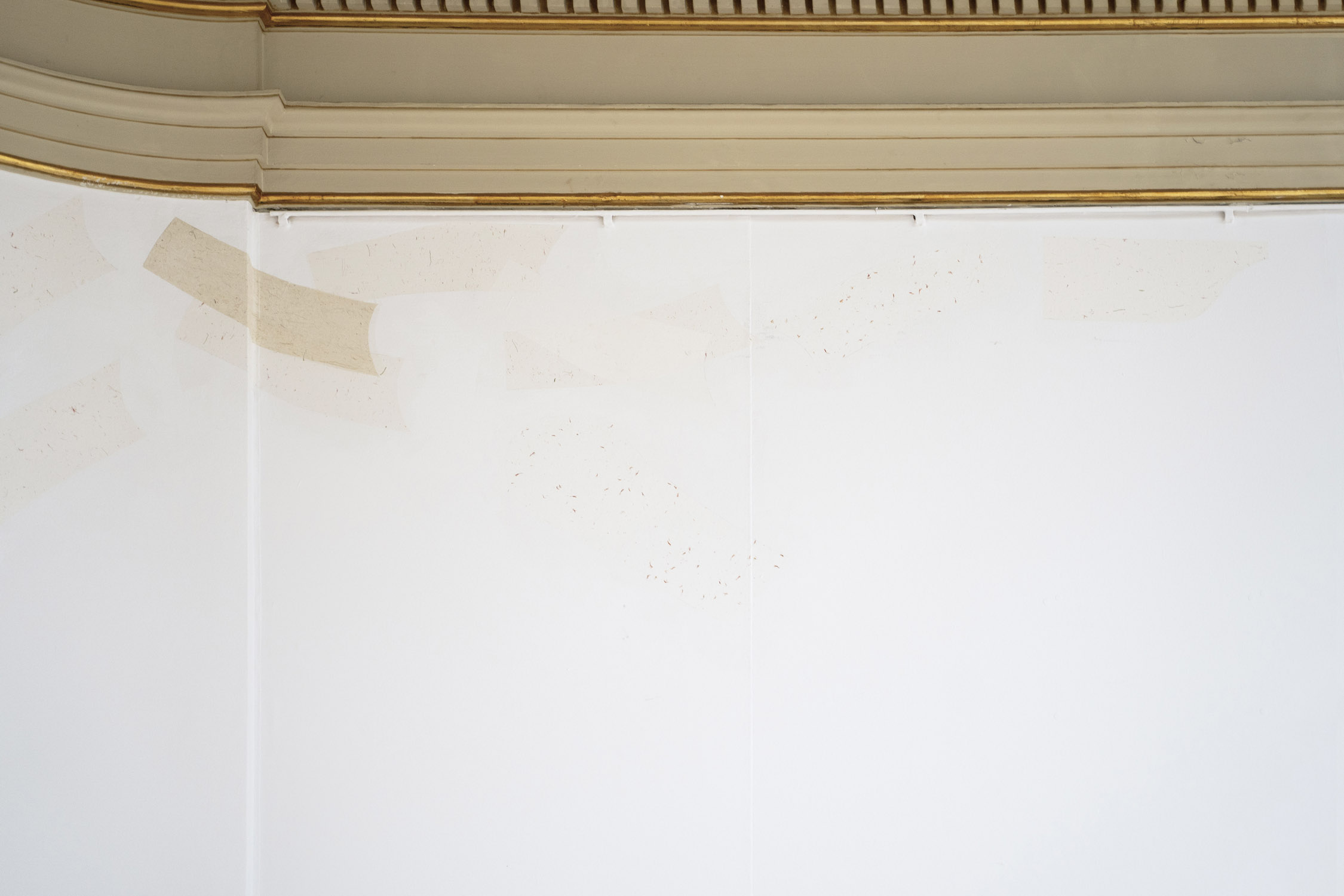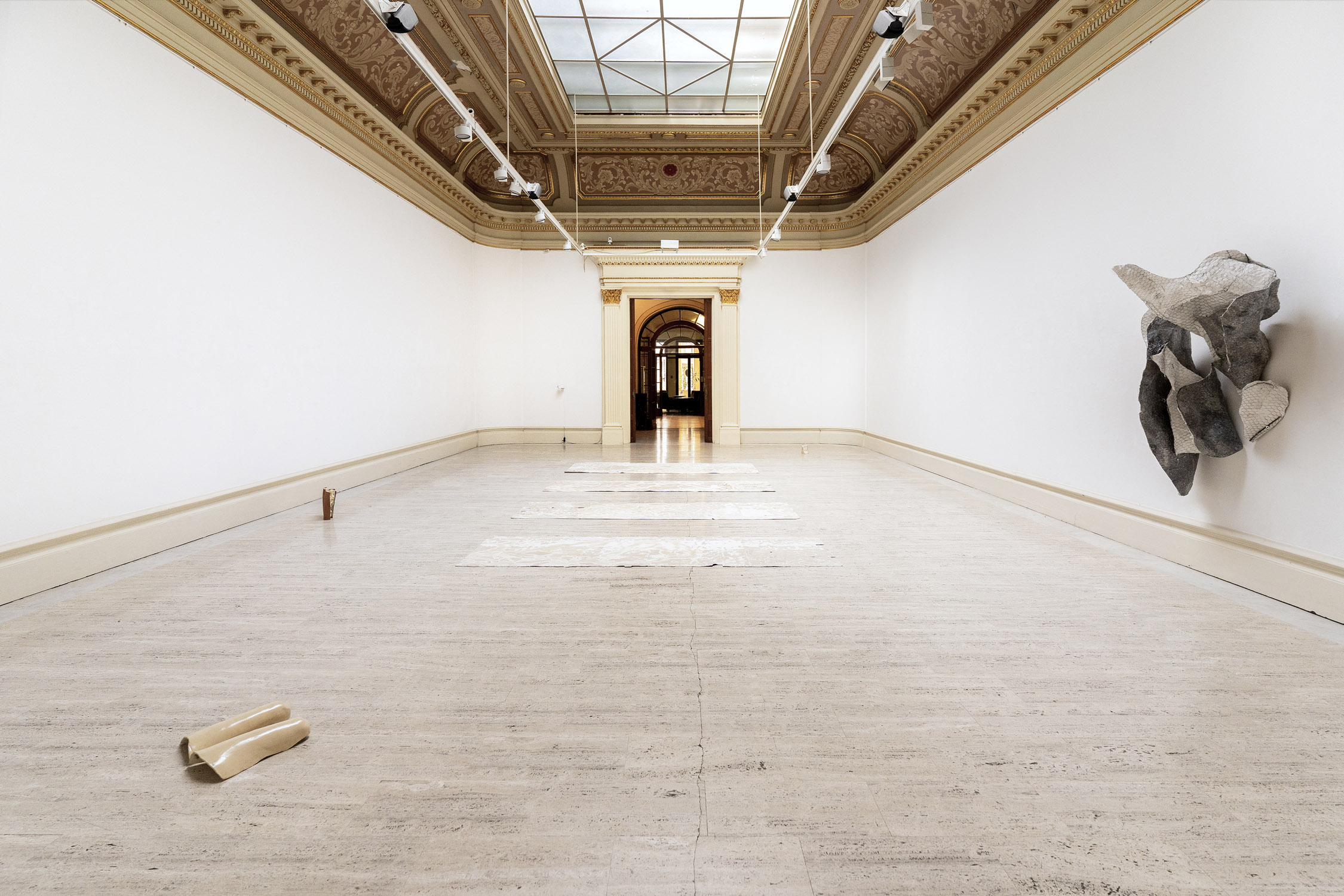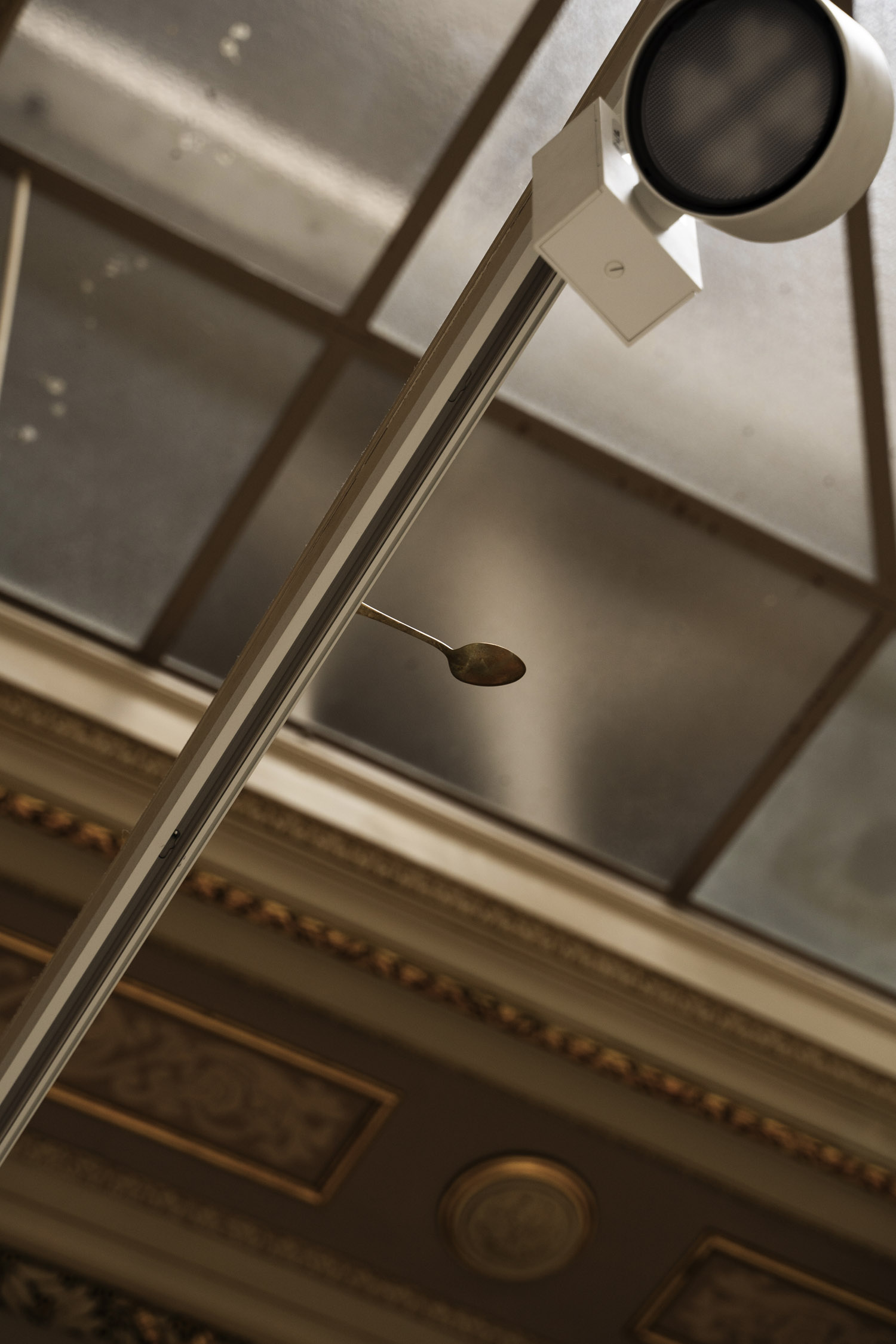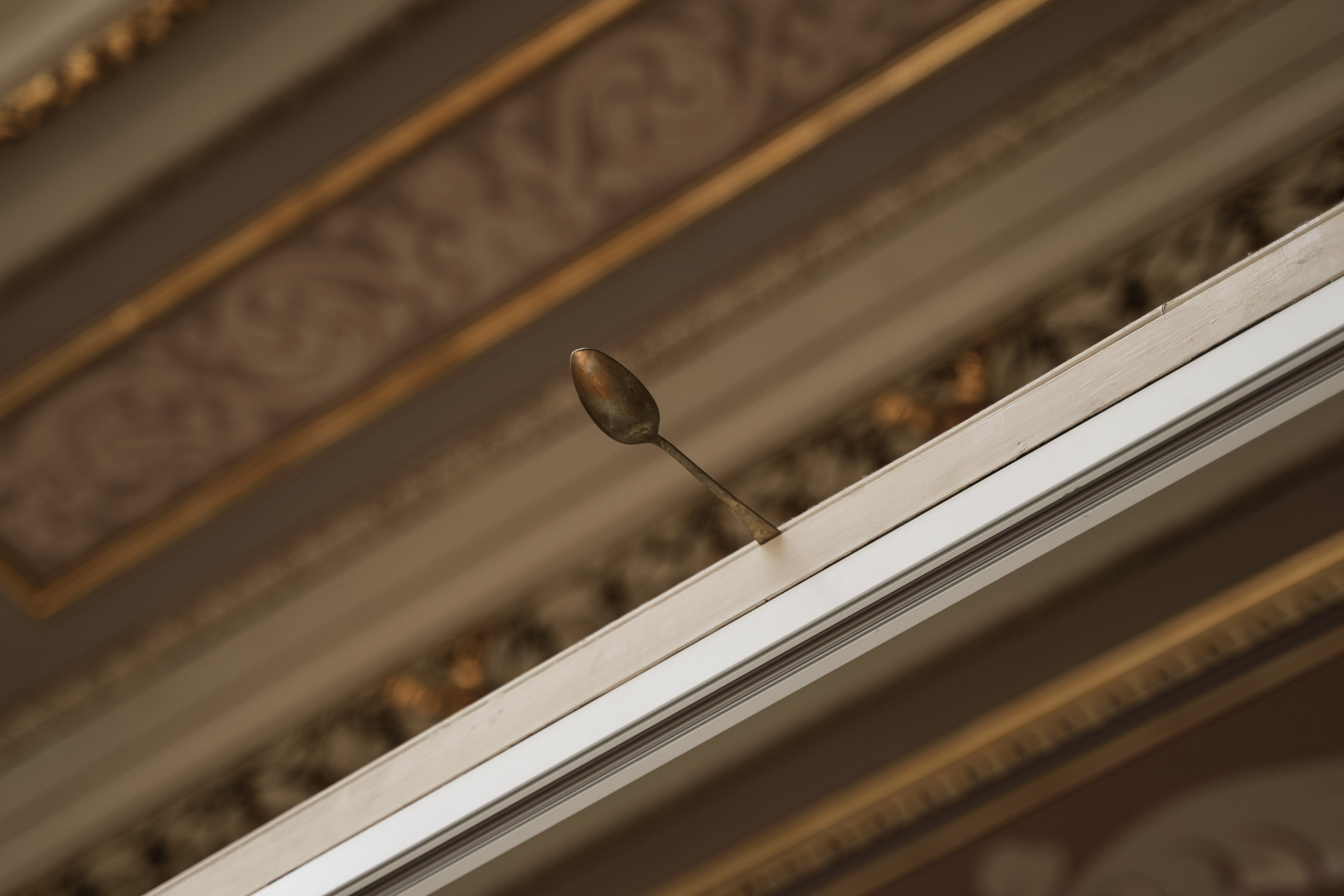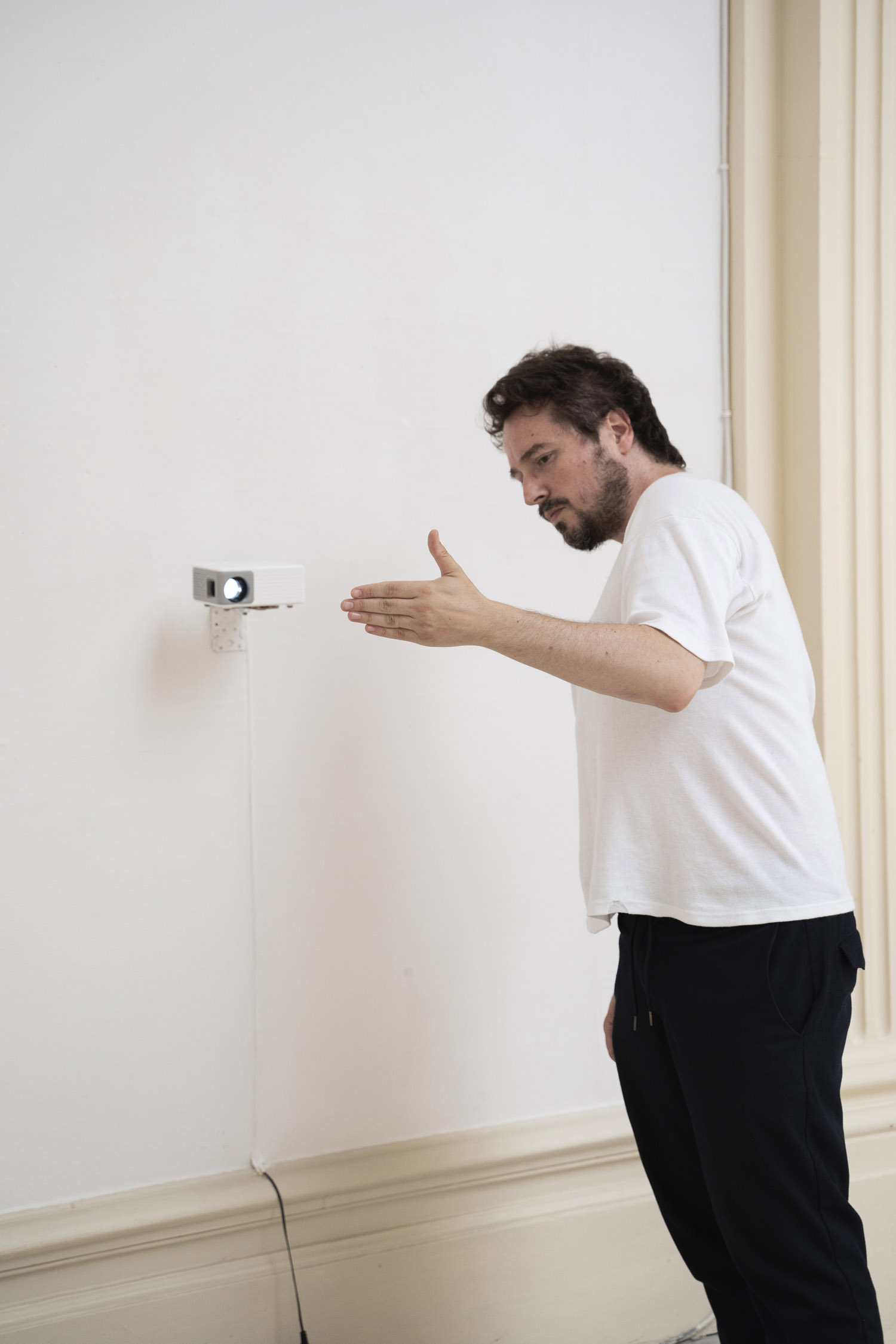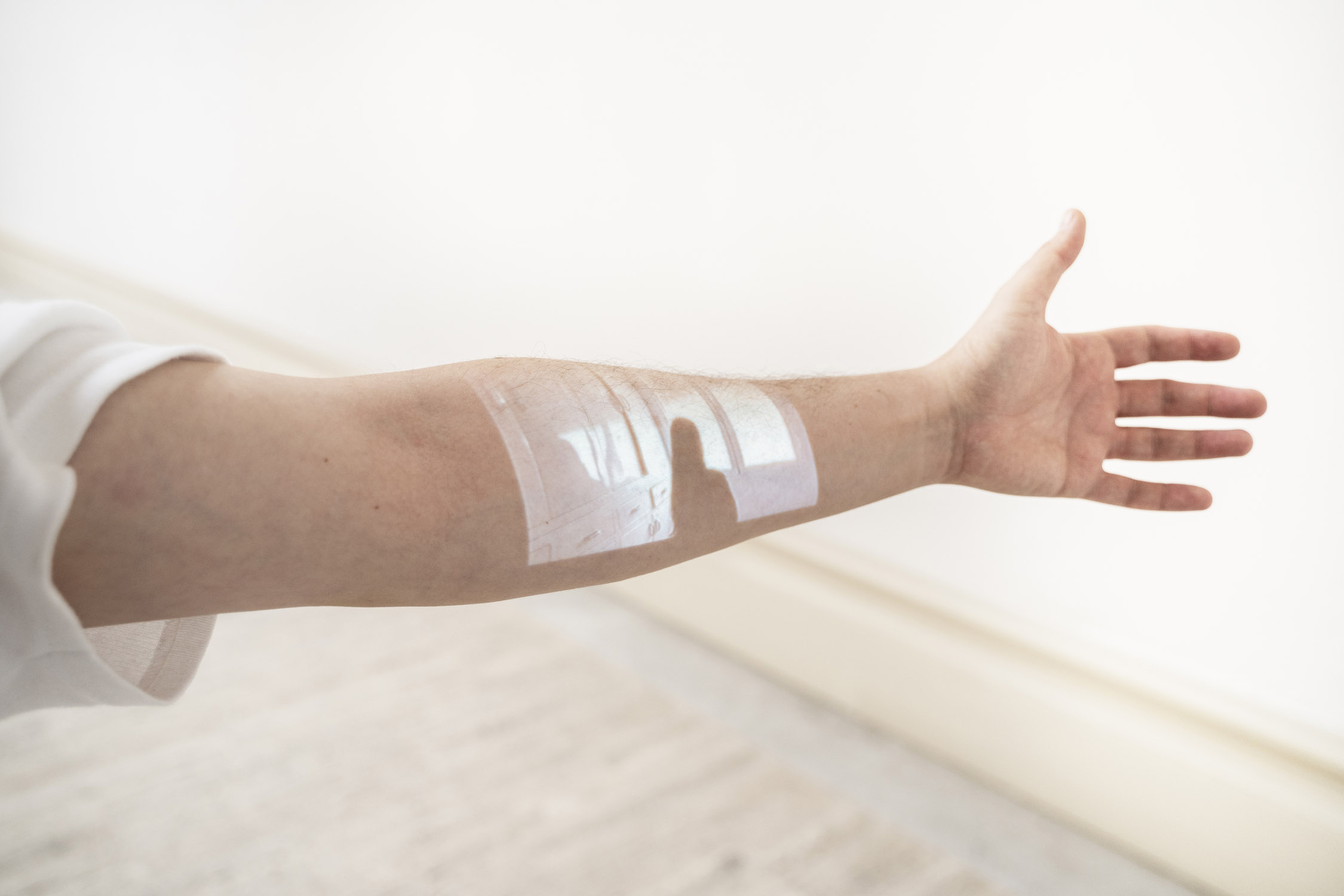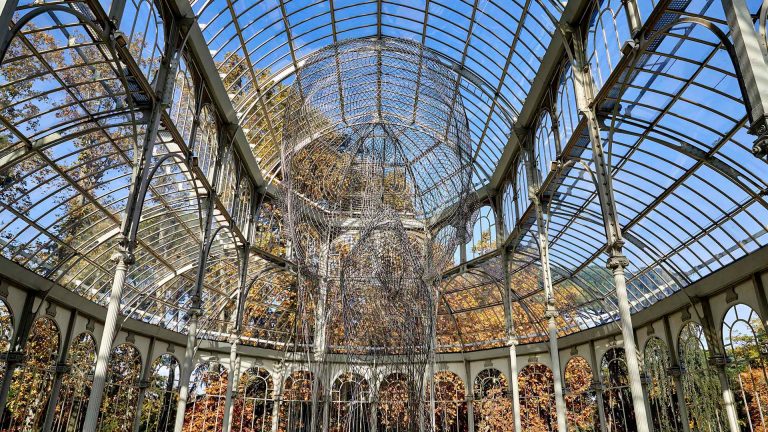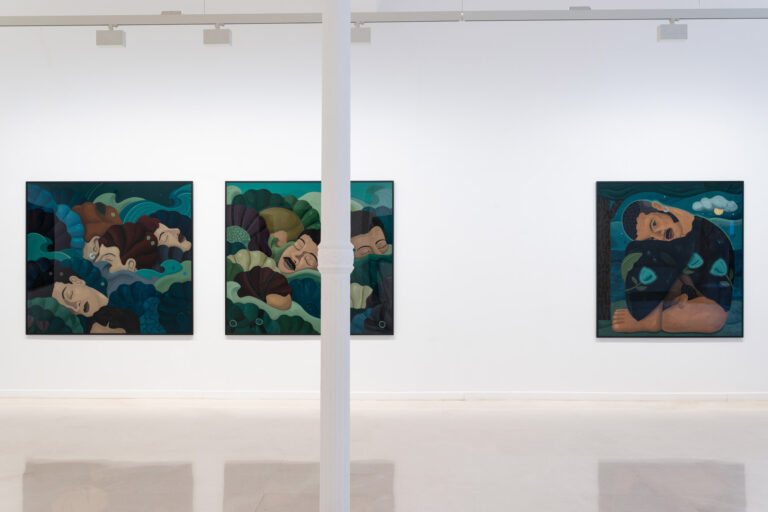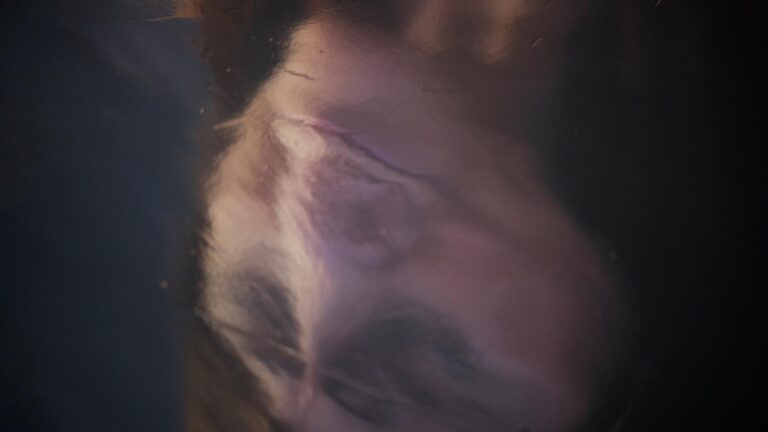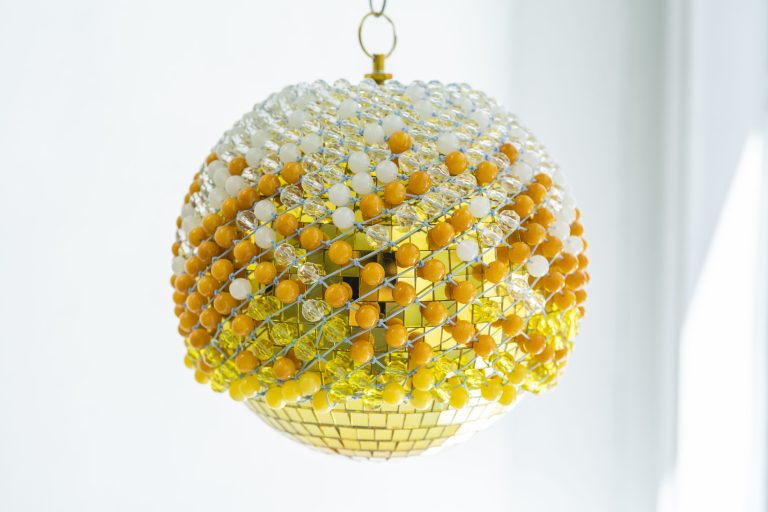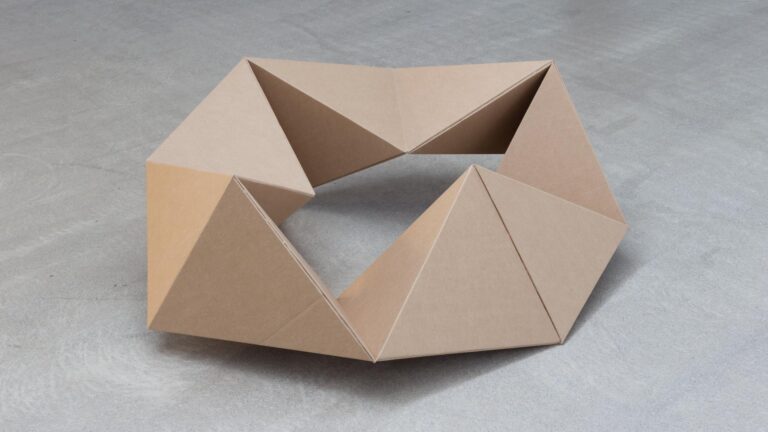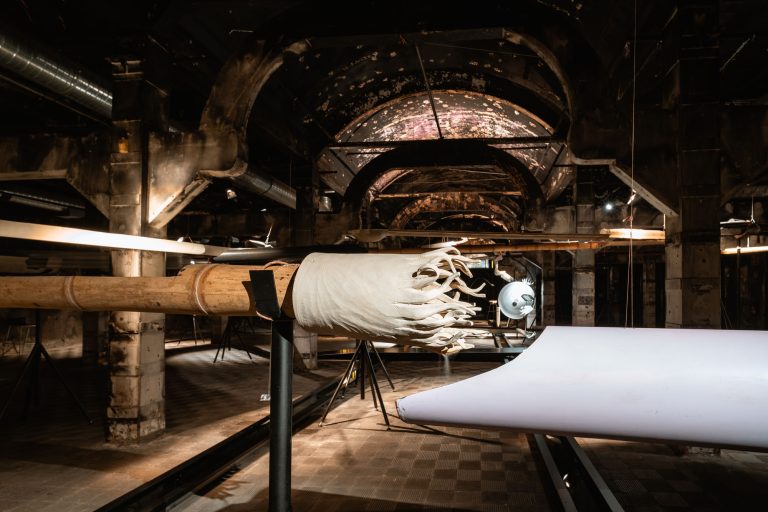Artist: Cristina Spinelli
Exhibition title: umbel·la
Curated by: Jordi Vernis
Venue: Centre de Lectura, Reus, Spain
Date: July 12 – August 16, 2024
Photography: Goro Studio / all images copyright and courtesy of the artist and Centre de Lectura, Reus
Resurrecting only the skin, without the body that covers and belongs to it. Cristina Spinelli (Madrid, 1993) brings back to life the trimming of the drawing she made two years ago, with fire, on plasterboard walls, later repainted. The flourish burned into the wall was buried under the plastic paint; and now, the surfaces have been polished, the membranes have been torn from the plasterboard body and under the title of folus (aura) appear again like burnt clothes spread out on the floor. Like niches, like archaeological research plots. Archeology as scar.
Spinelli does not give up thinking about her artistic practice in terms of language. Plasterboard is important because it is a conjugation of different materials -paper, plaster, aluminum, fiberglass-. Intervening it, disintegrating it and recovering a language that had been hidden within means undoing a palimpsest and revealing a text that develops in an elliptical, umbelliferous way.
These skins stretched on the floor interpellate, morphologically, the layers of rice paper of umbela [umbel], the exhibition’s homonymous work that grows like a flower on the wall of the showroom joining fragments of clothing patterns. Again, a surface that emphasizes the absence of the body it clothes. We find it also in and , the ceramic works made from the mold of the artist’s legs. In some we find wax that is sheltered in its concave part; in others, what is sheltered in the concavity are some wildflowers that Spinelli raided and preserved inside a book.
Because hiding and burying are forms of protection. A protection without guarantees. Like the nervous and erratic language that has freed itself from the compact homogeneity of plasterboard, Umbel·la [Umbel] as an exhibition shows us a nature that can no longer show itself or act as a block, with a certain consistency. It is in this sense that, sin título [untitled], it is shown to us spineless and worn out, and the binding that characterizes this object takes on a new grammar, emerging from the pages that hide it -like the flowers now in the ceramic pieces- to take on visibility.
A final characteristic of Umbel·la is viscerality, a certain melodramatic sense. Going all in, with everything, brutally. They are proposals made point-blank. Collapsing to rise again, like tus geranios con nosotras [your geraniums with us], a 2021 sculpture that now opens to show its insides. But the most ethereal works also show a certain fatigue or an emotional impact about to explode, like encender un fuego [light a fire], the sound work that fills the room with the sound of castanets; or last, the projection that is there and is not there, waiting for someone to give it support to manifest itself. And also Daniel, the spoon suspended in the air. One last umbel, umbrella, about to fall. About to lose.
In Umbel·la nothing ends in a painful result, but it does end at the limit of outburst.
– Jordi Vernis
This exhibition has been cooked over very slow fires between Barcelona, Madrid and Reus.
It would not have been possible without the inestimable support, accompaniment and listening of: Joan Bennassar, Rebeca Blanchard, Juliana Cerqueira Leite, Noela Covelo Velasco, Alvaro Chior, Martim Dias, David Figueres, Ignasi G. Buneri, Carla Gimeno Jaria, Rubén Grilo, Xavier Martín Llavaneras, Vera Martín Zelich, Dolors Esquinas, Ana Martínez Fernández, Matriu (Trifon, Míriam Abryl and Xavi Bonillo), Rafa Munárriz, Alex Nogueras, Paula Noya de Blas, Escampa Olis, Arnau Olivé Ferran, Àlex Palacín, Mateo Palazzi, Carlos Romano Silveira, Víctor Ruiz Colomer, Paula Rubio Galicia, Gerardo van Waalwijk, Jordi Vernis López, Maria Rosa López and Jordi Vernis Domingo, Iñigo Villafranca Apesteguia, Jesús Villasante, Ronald Zambrano.
